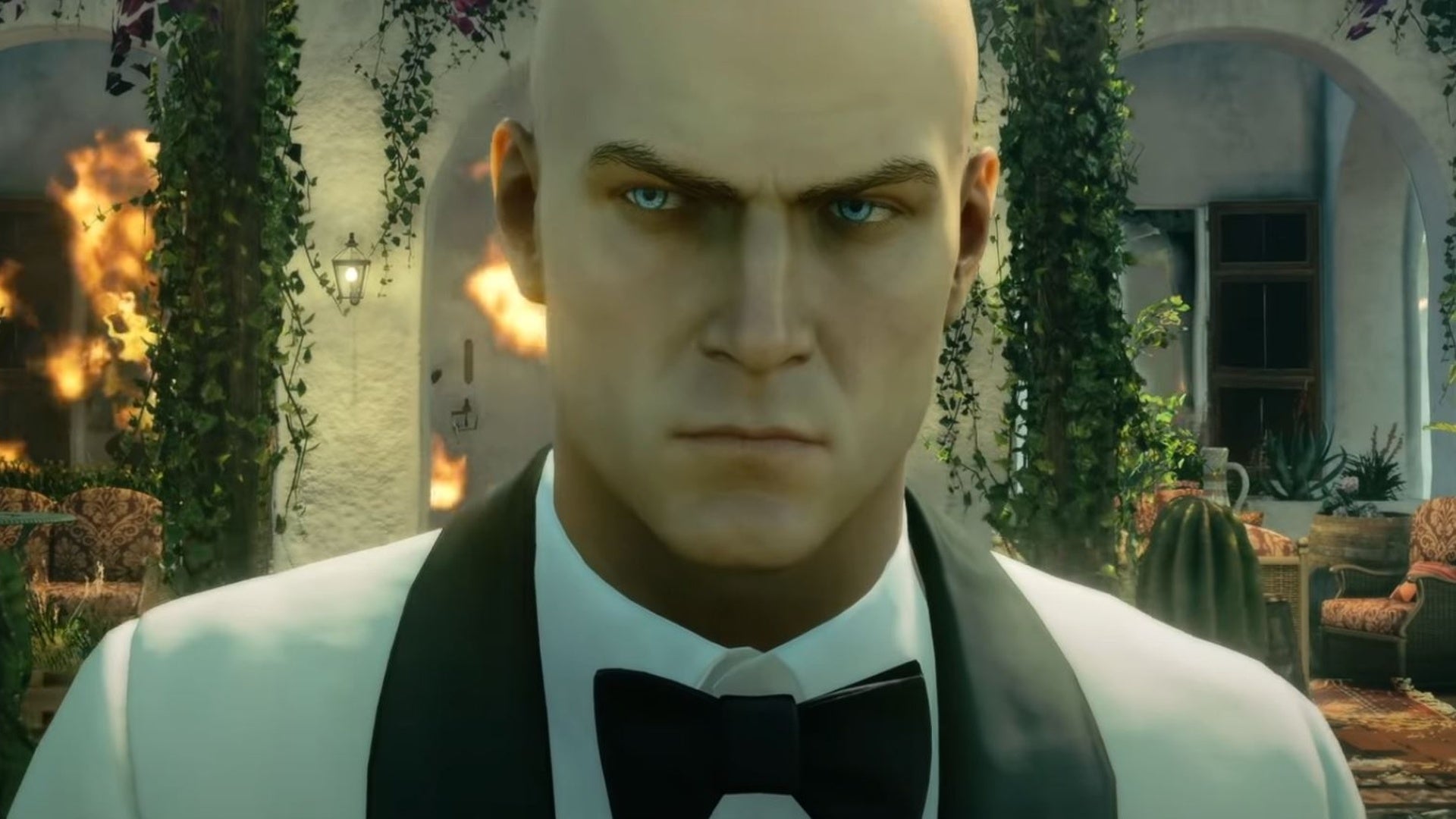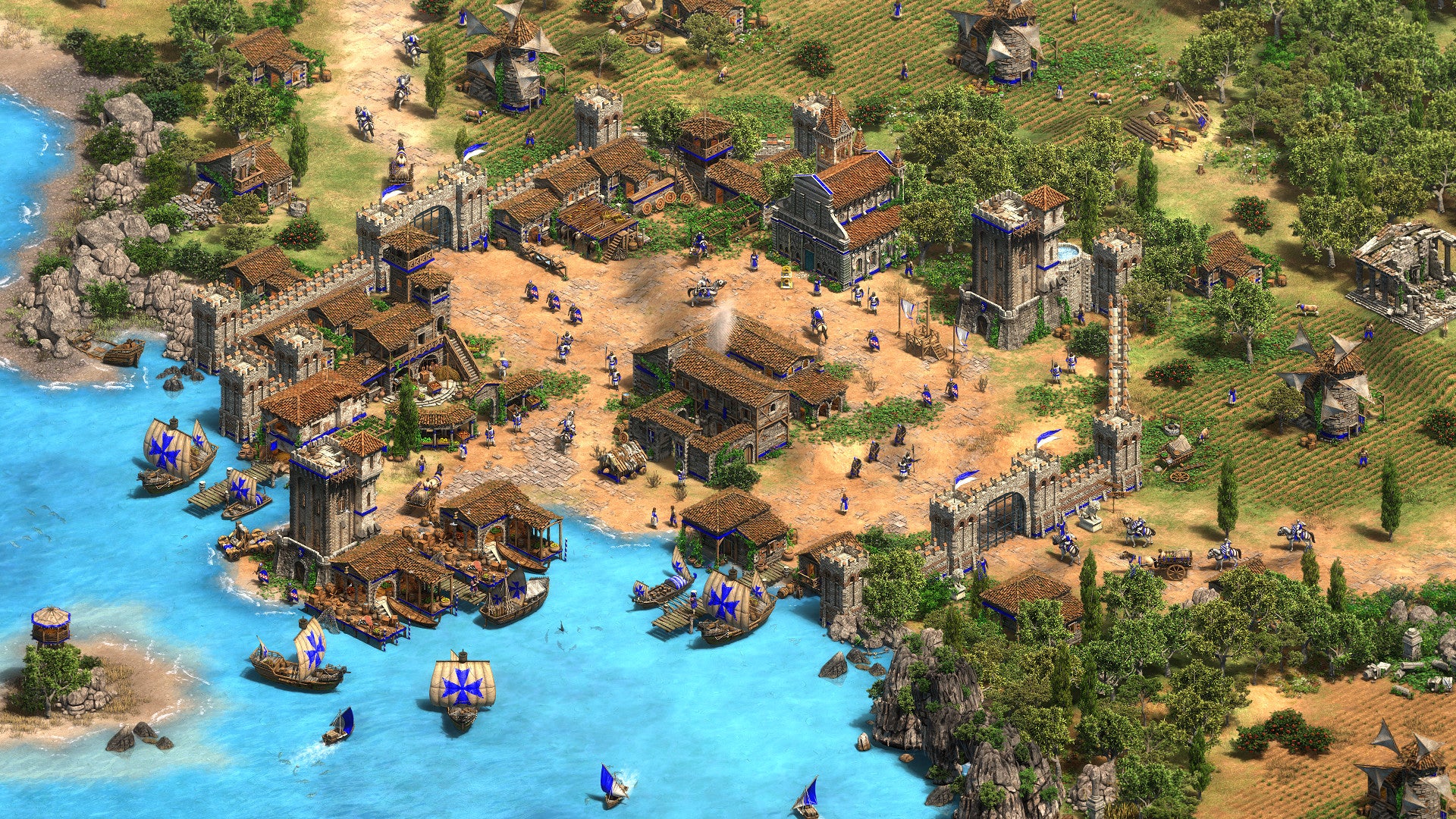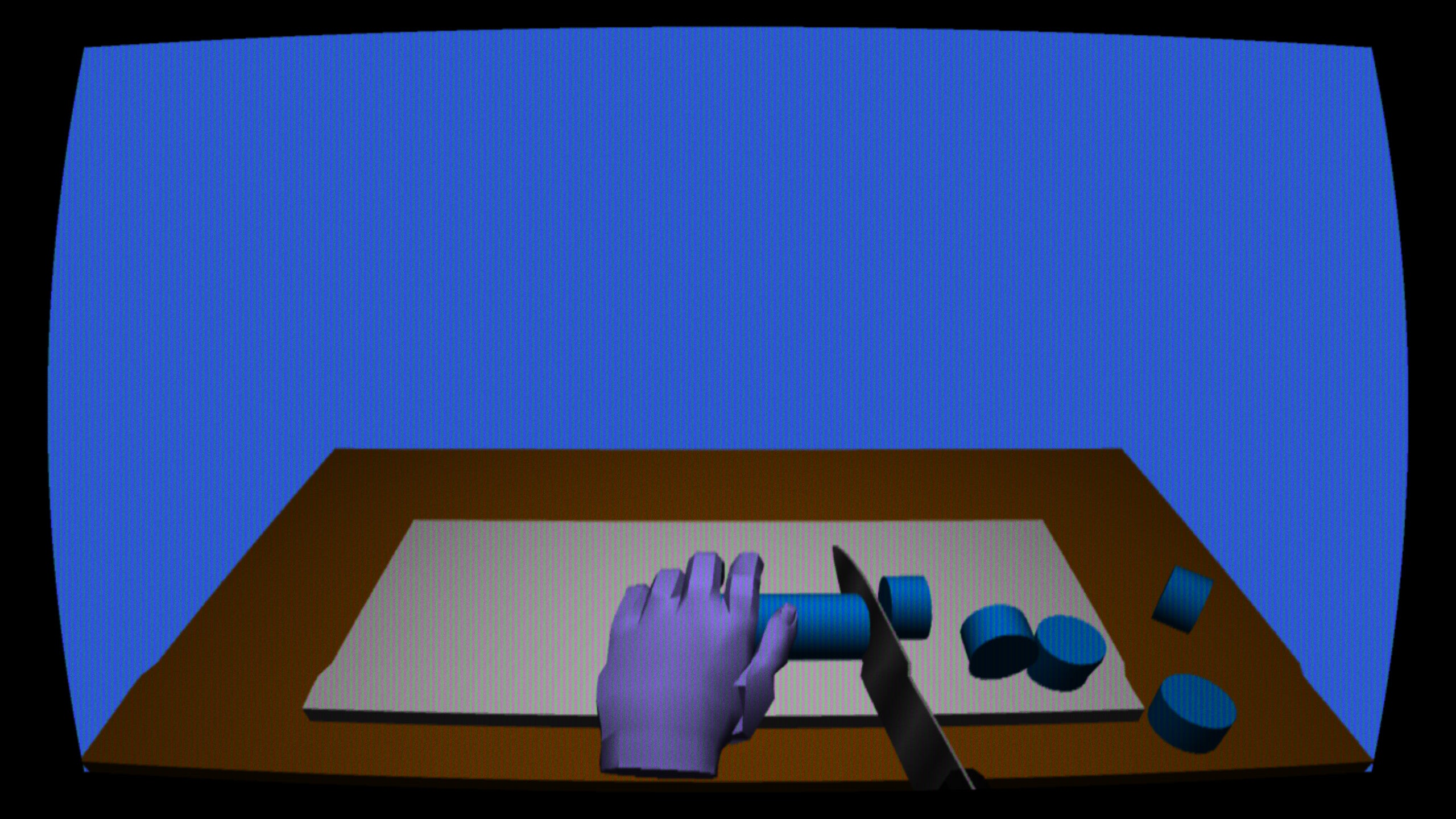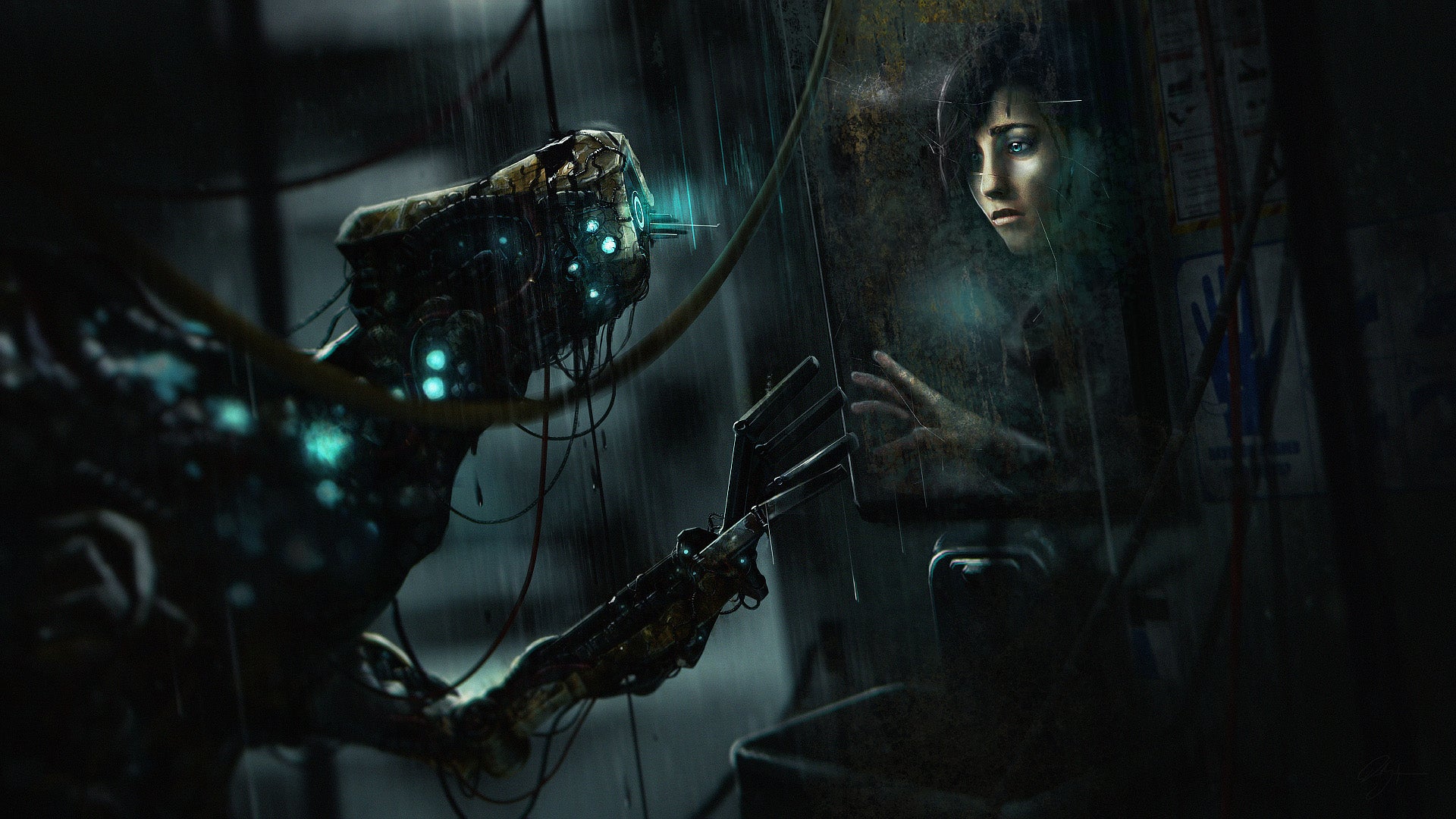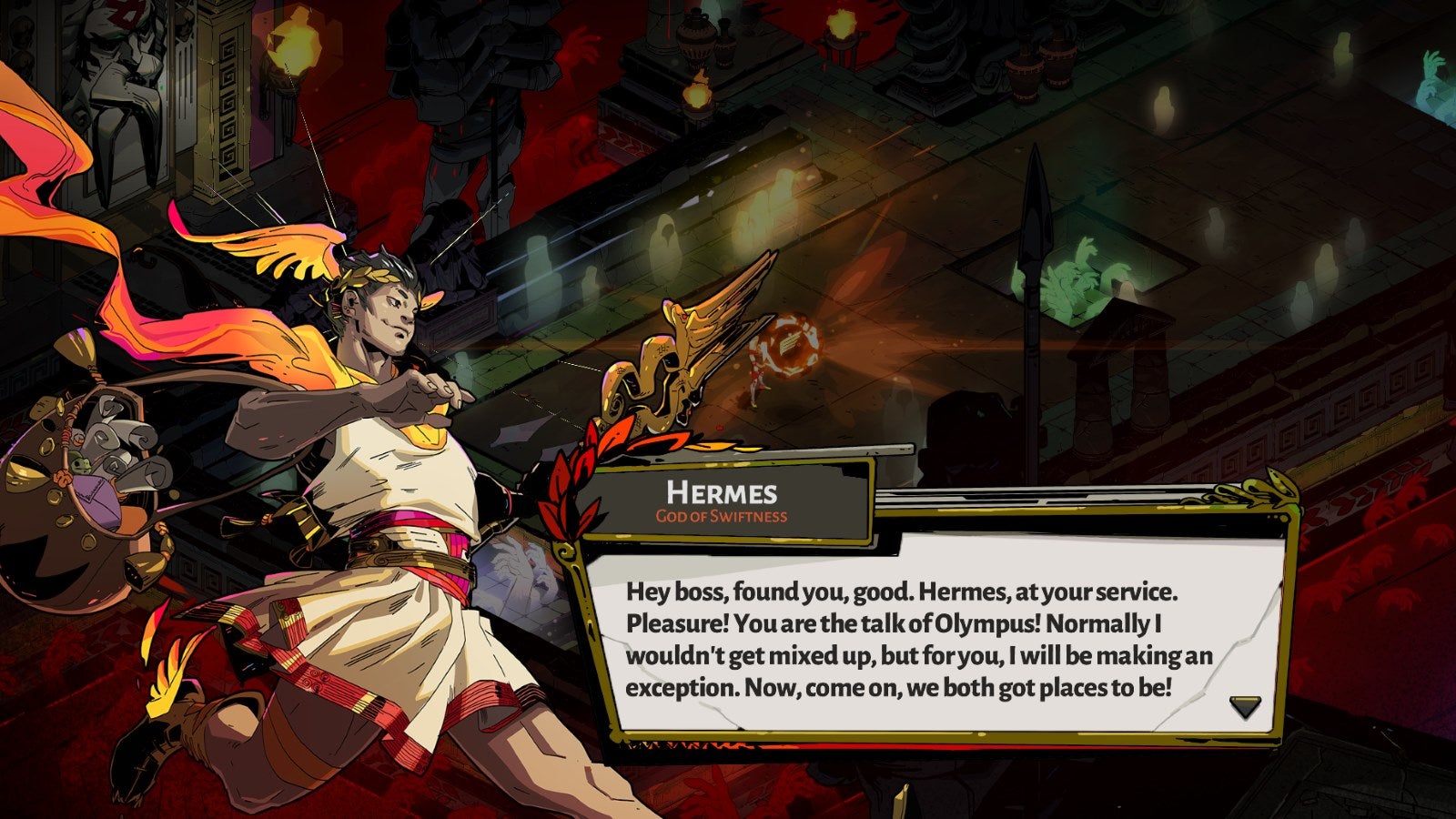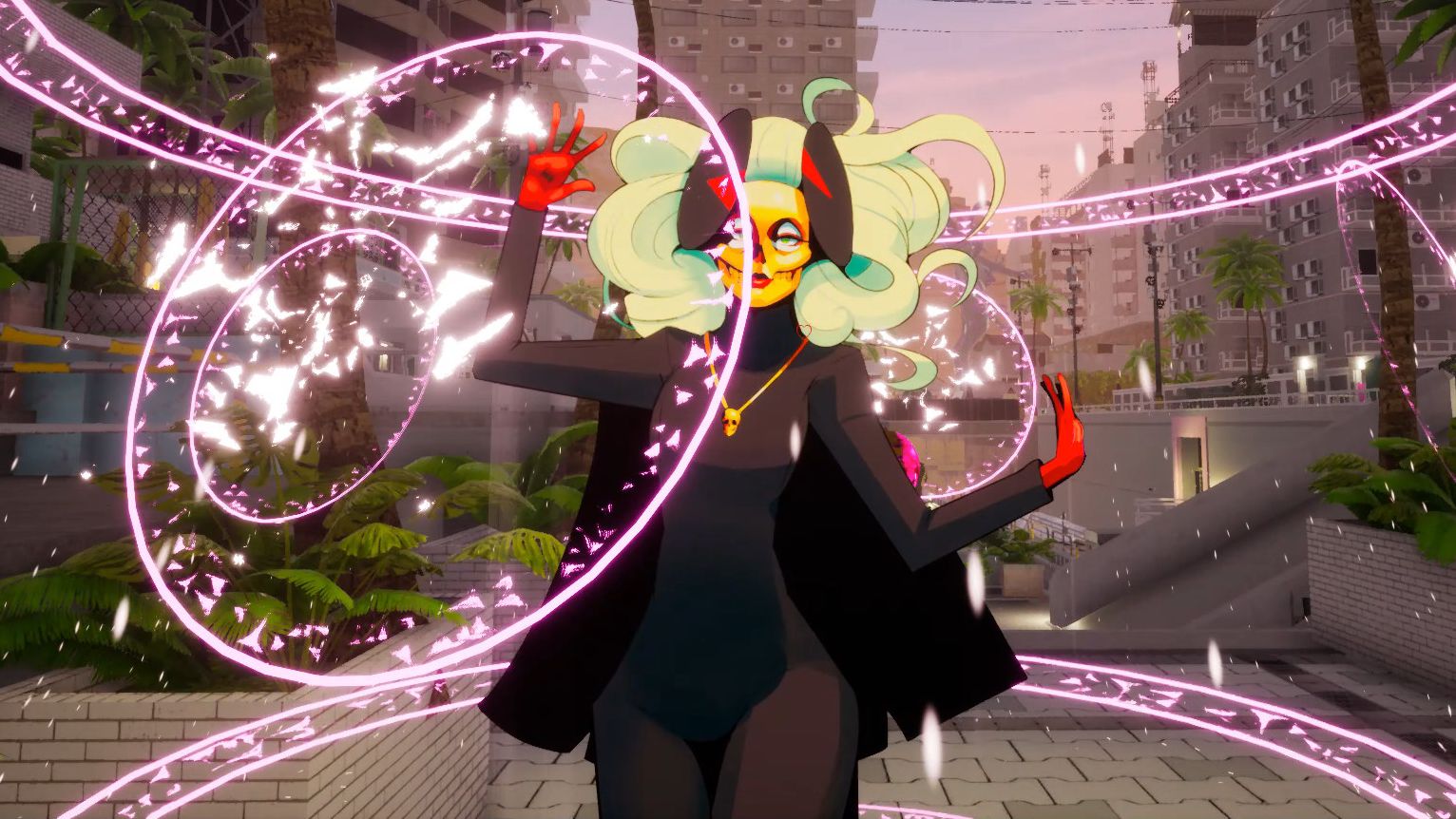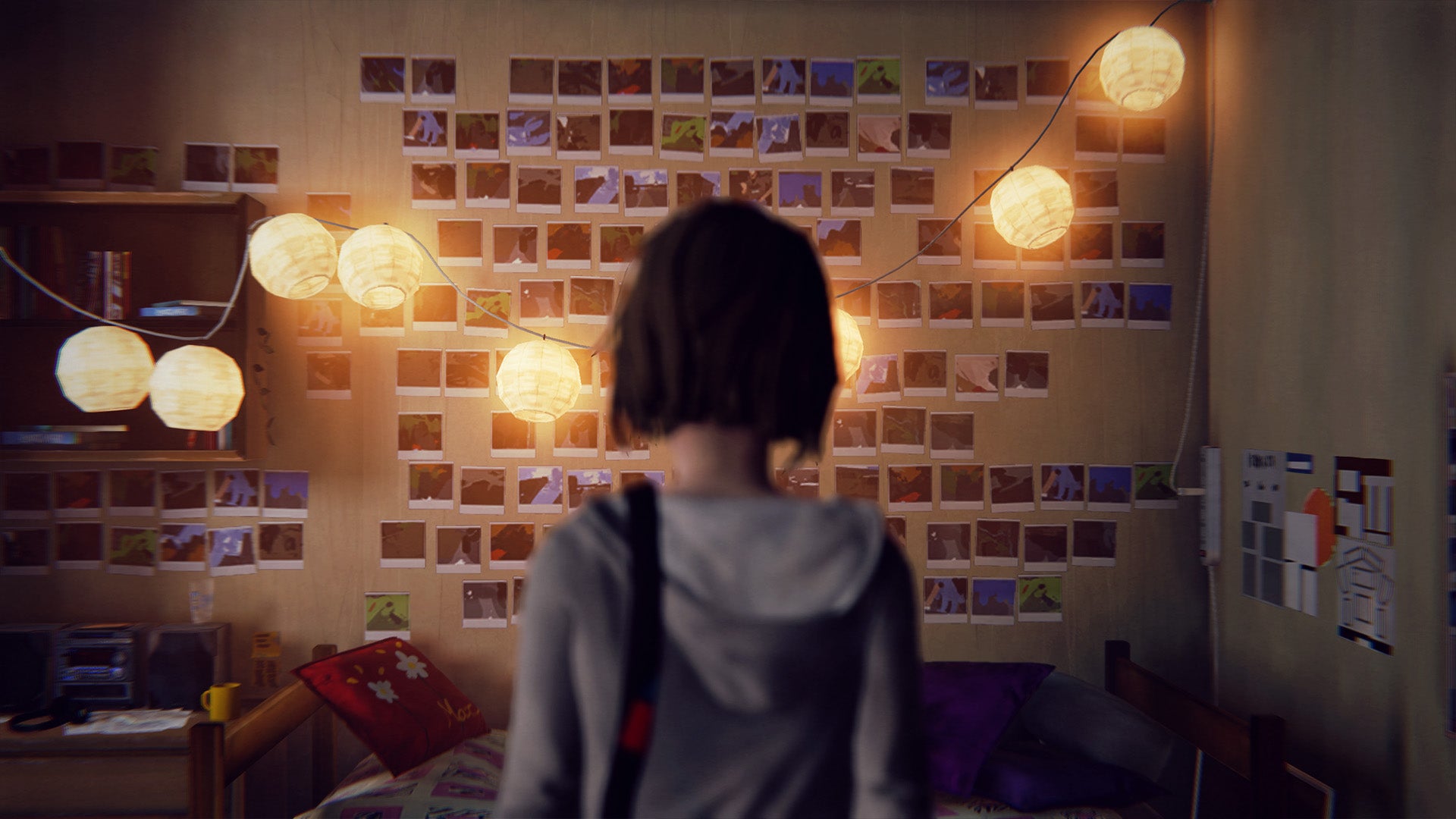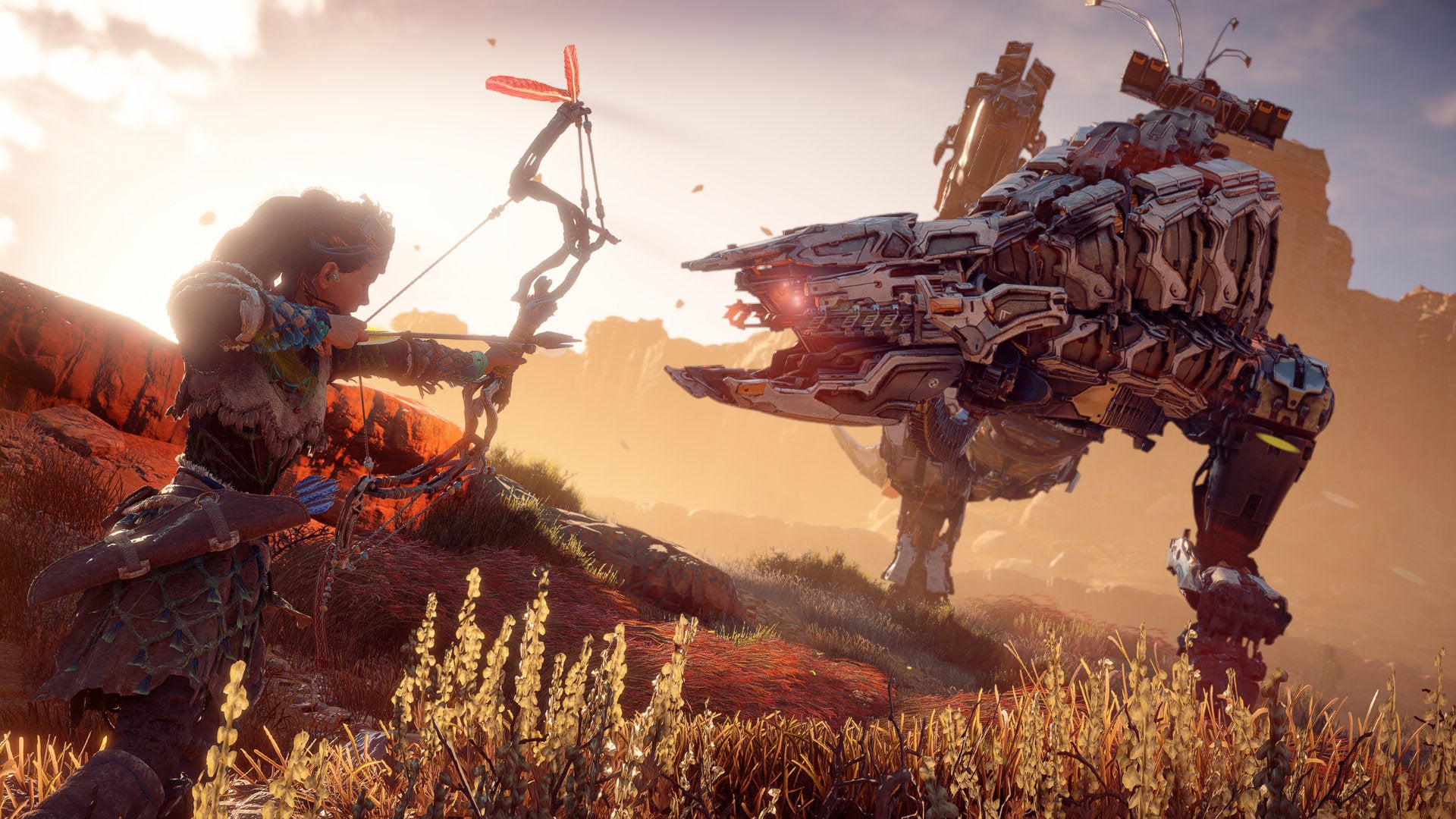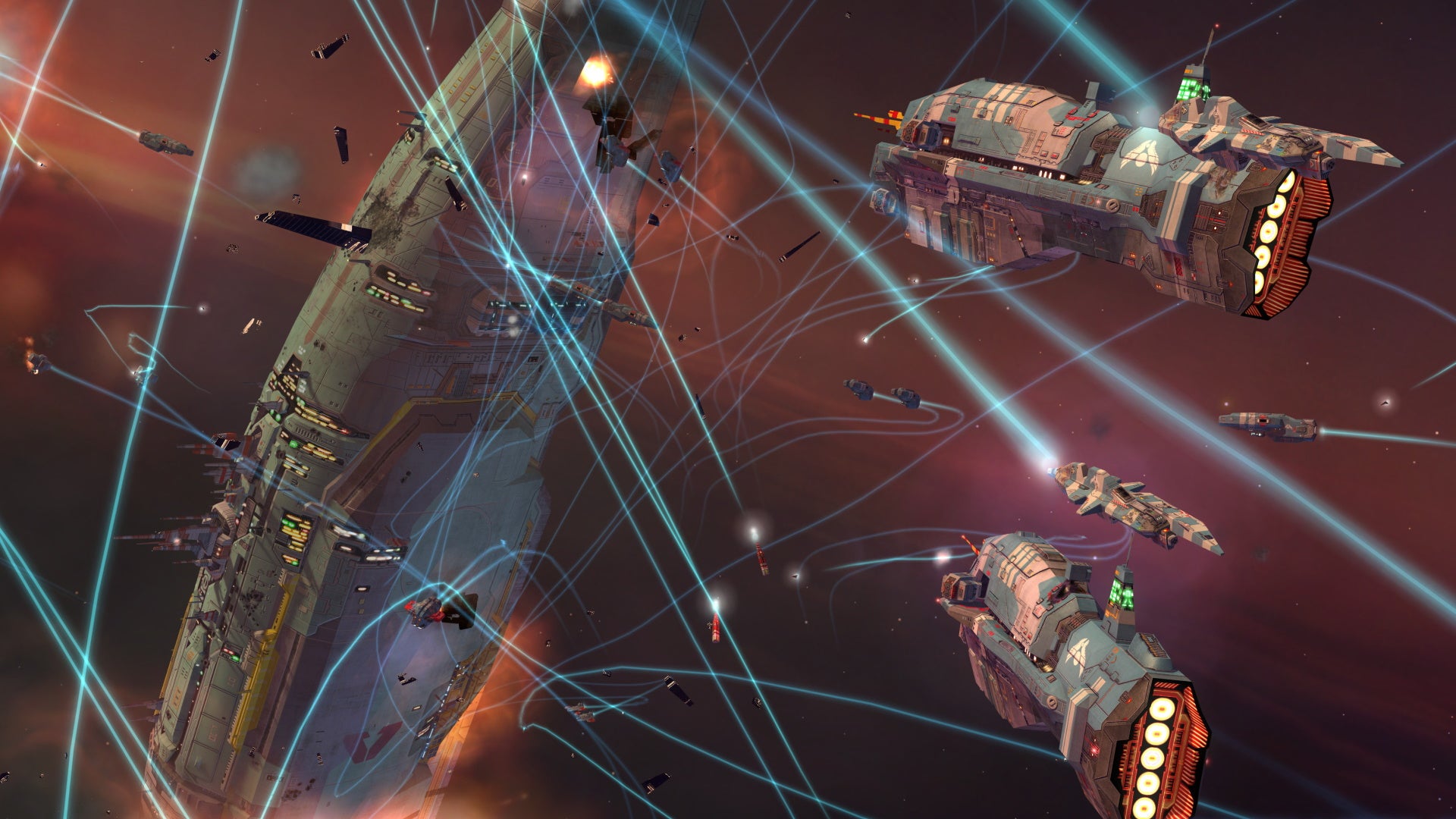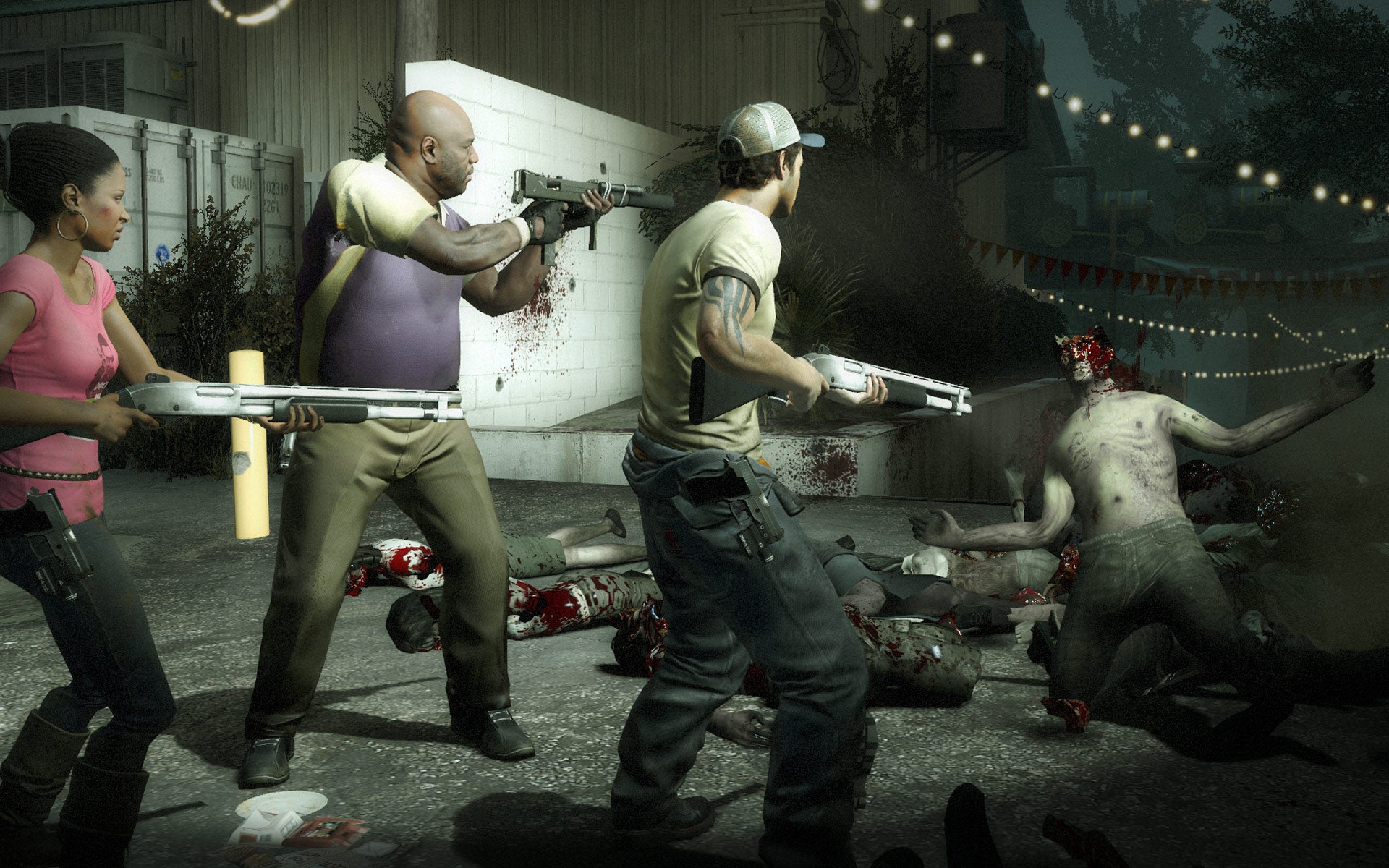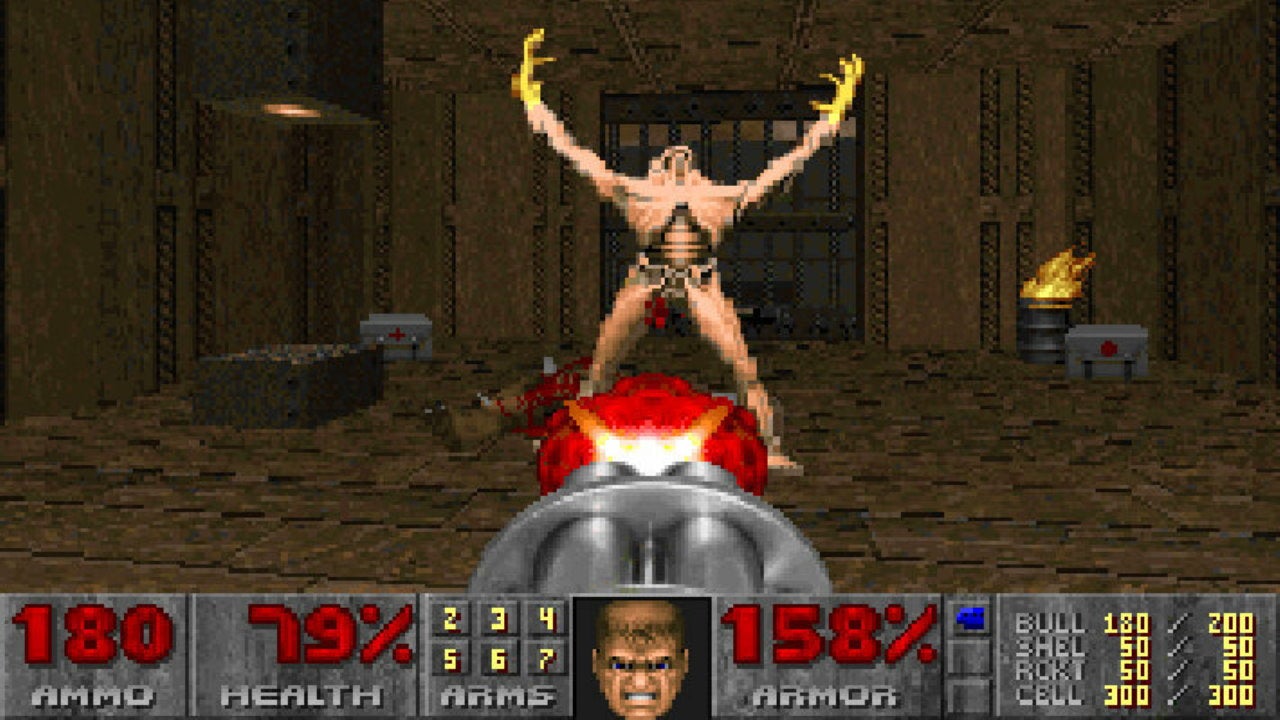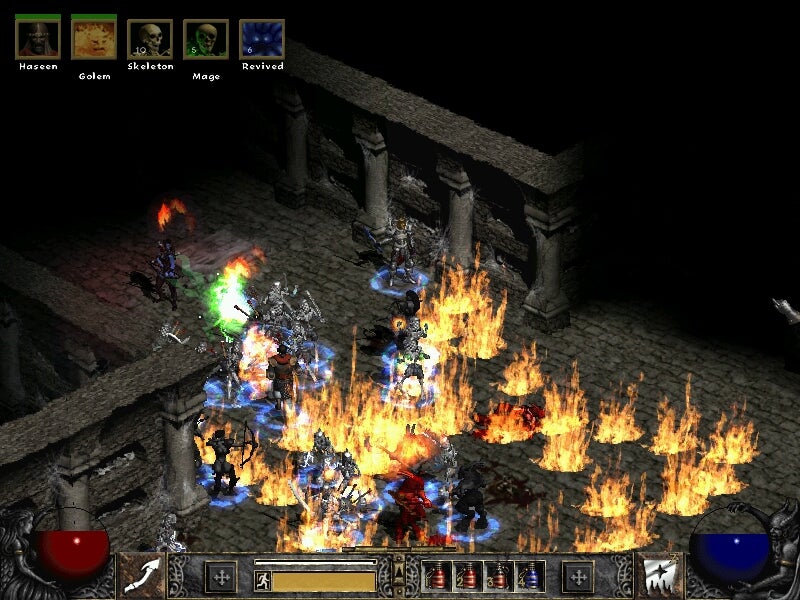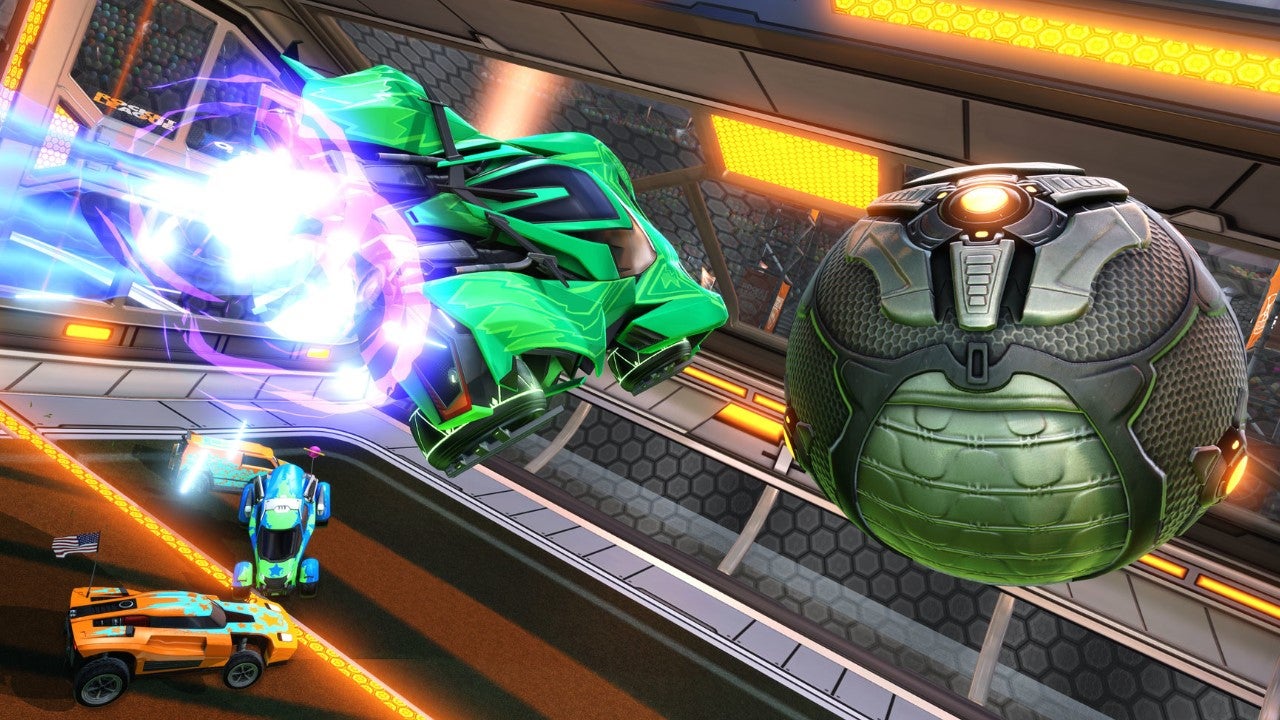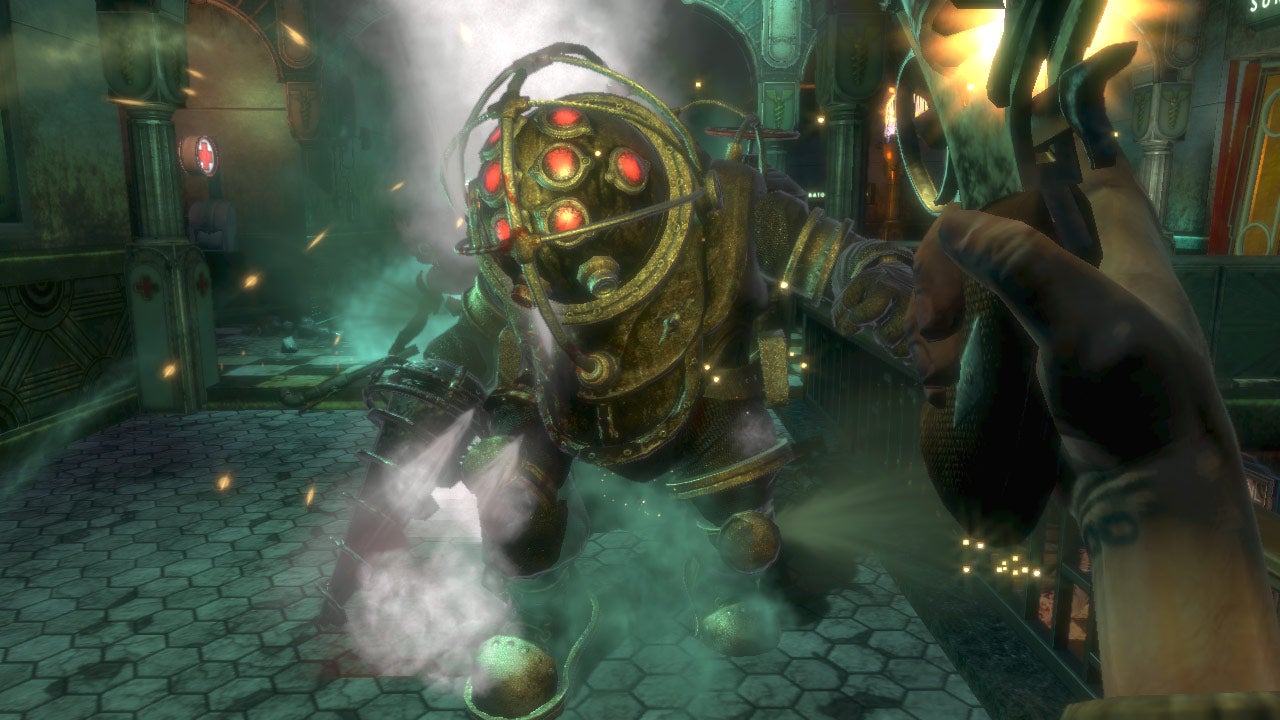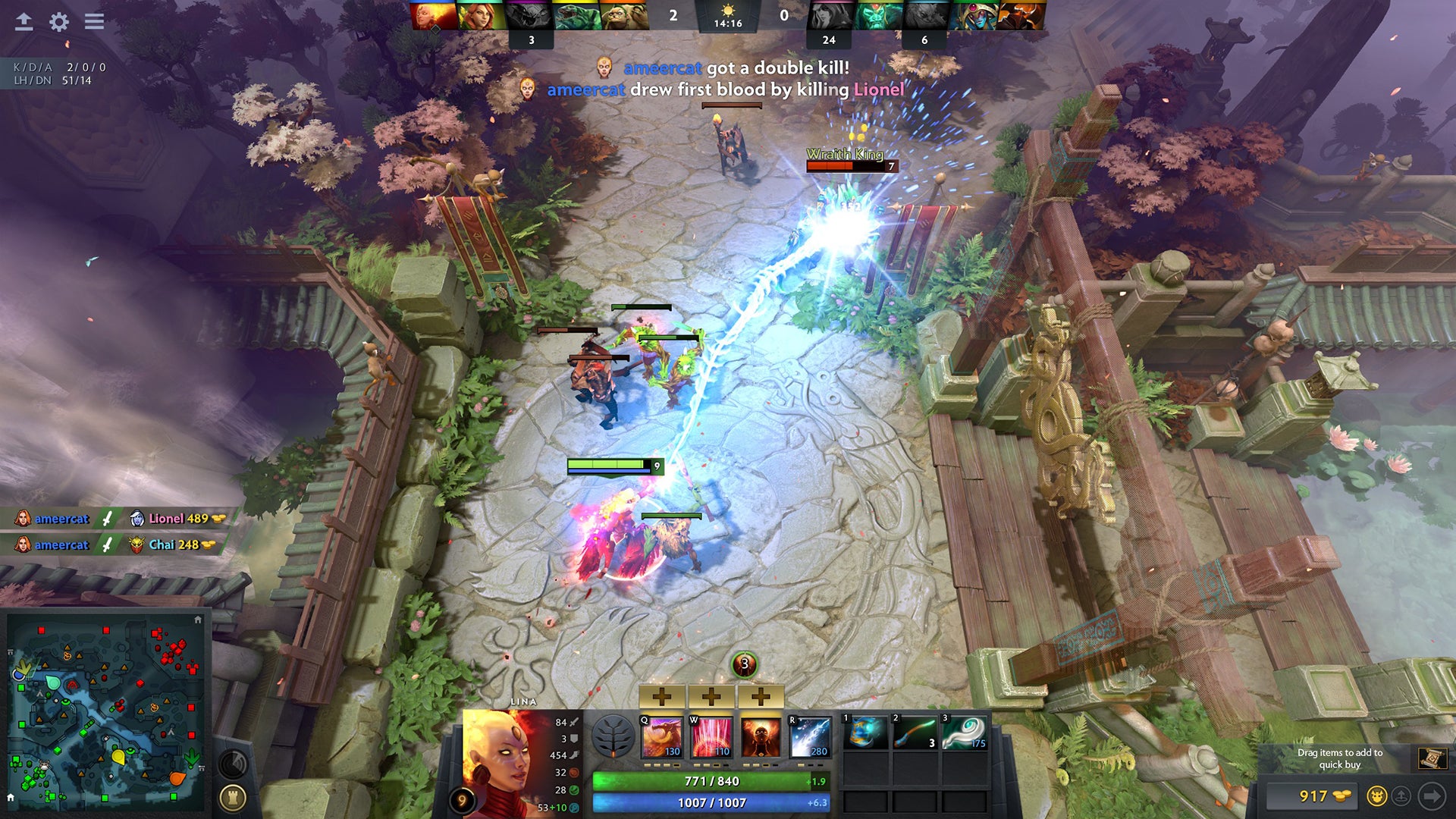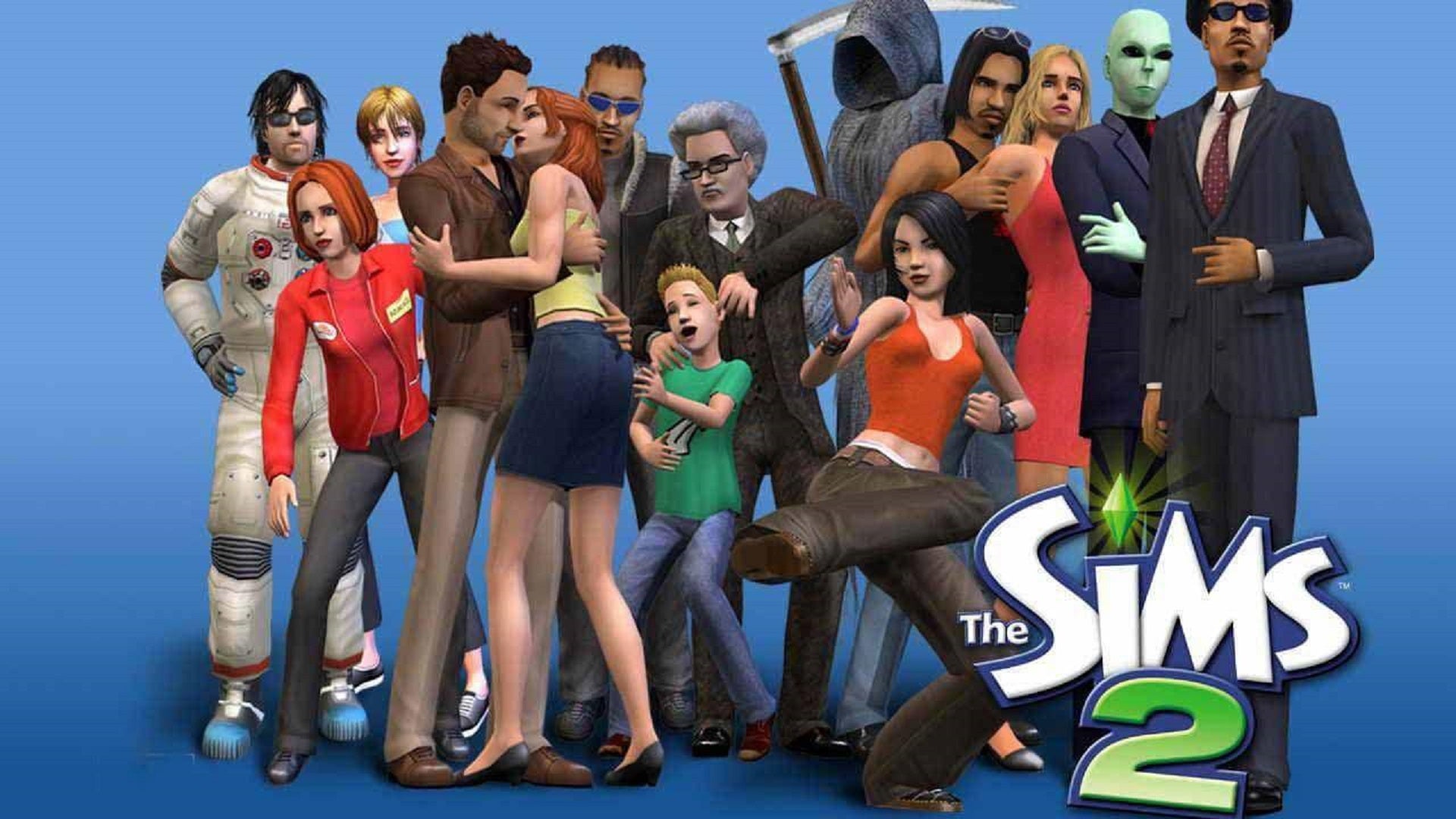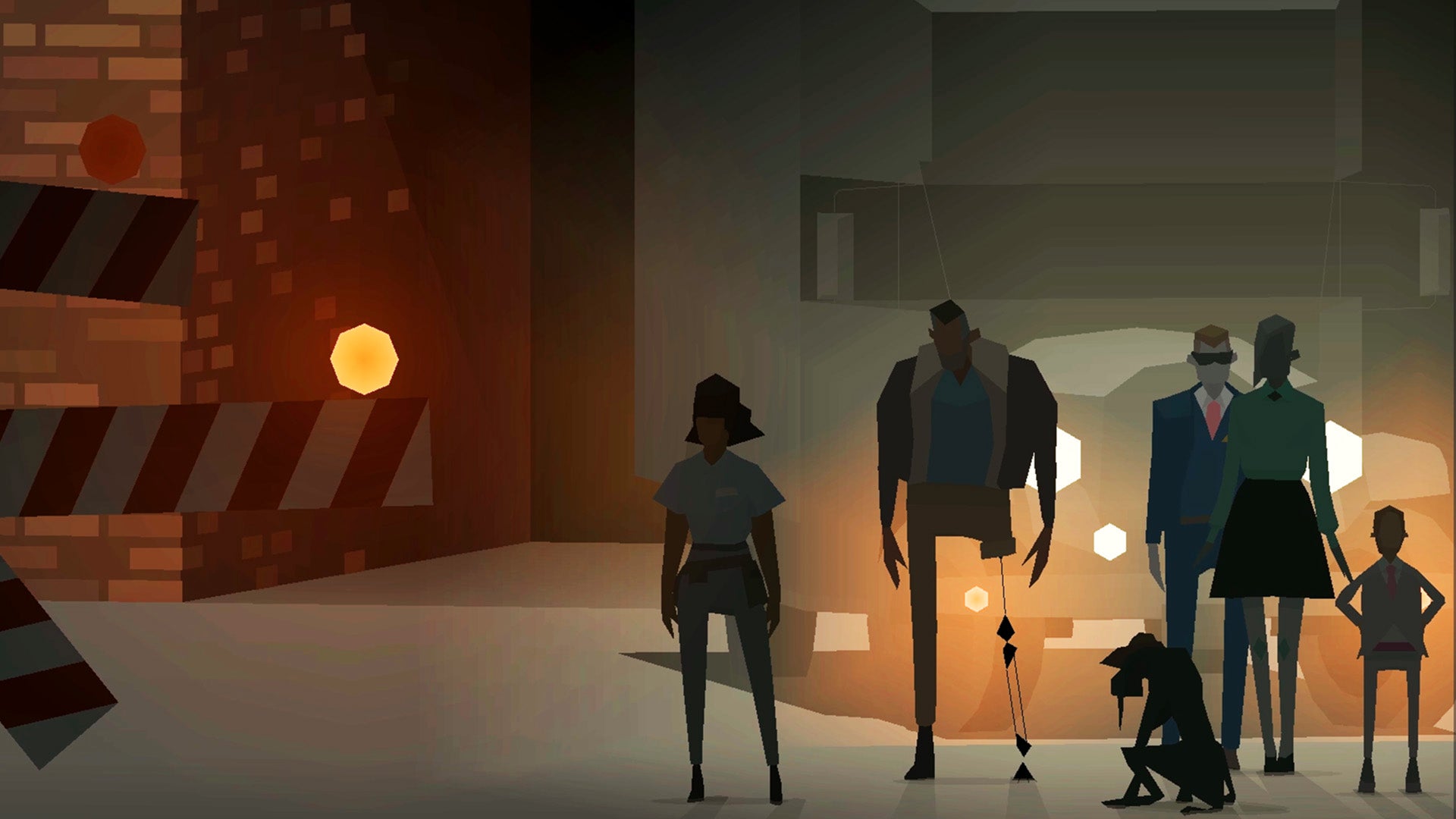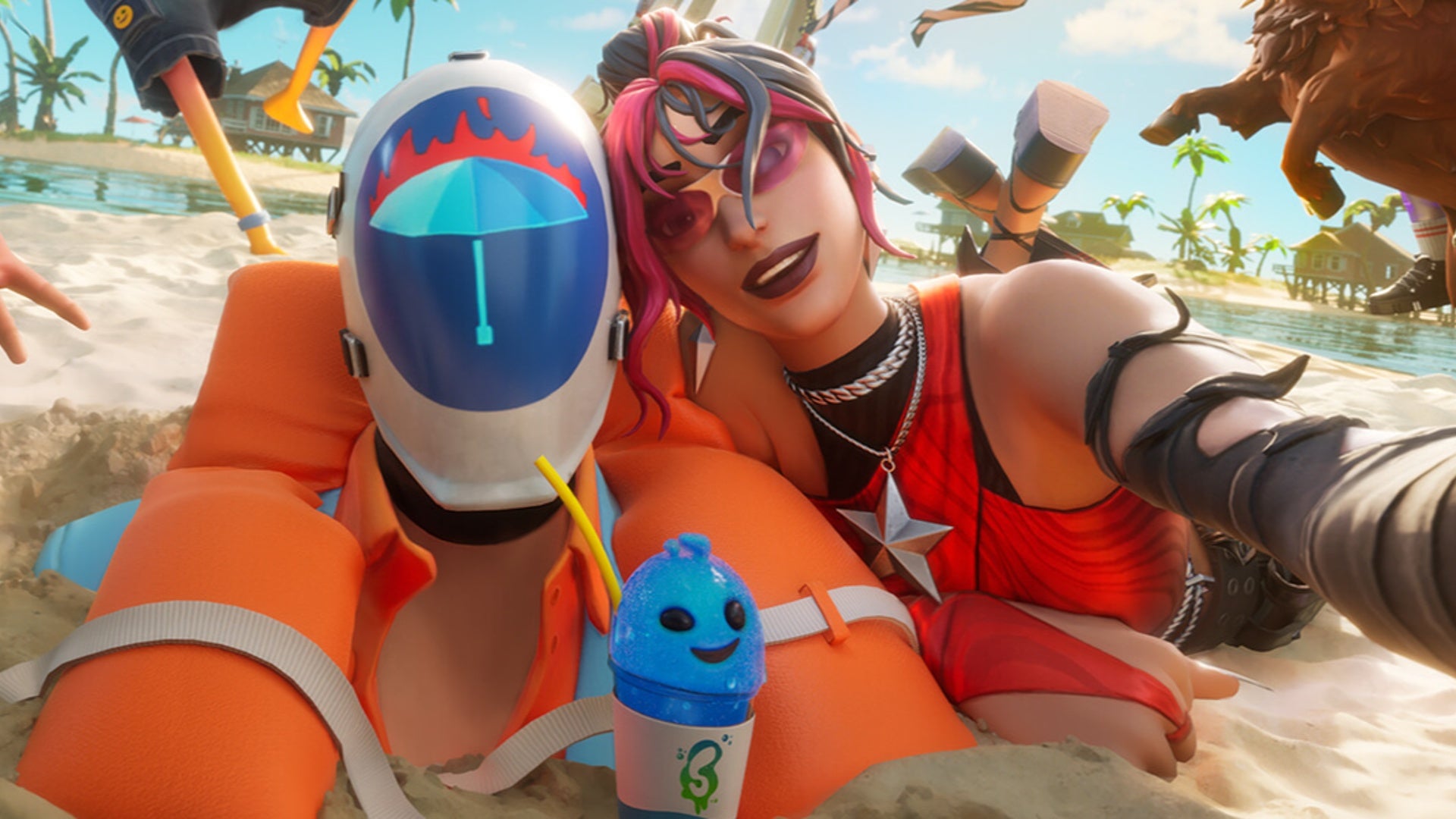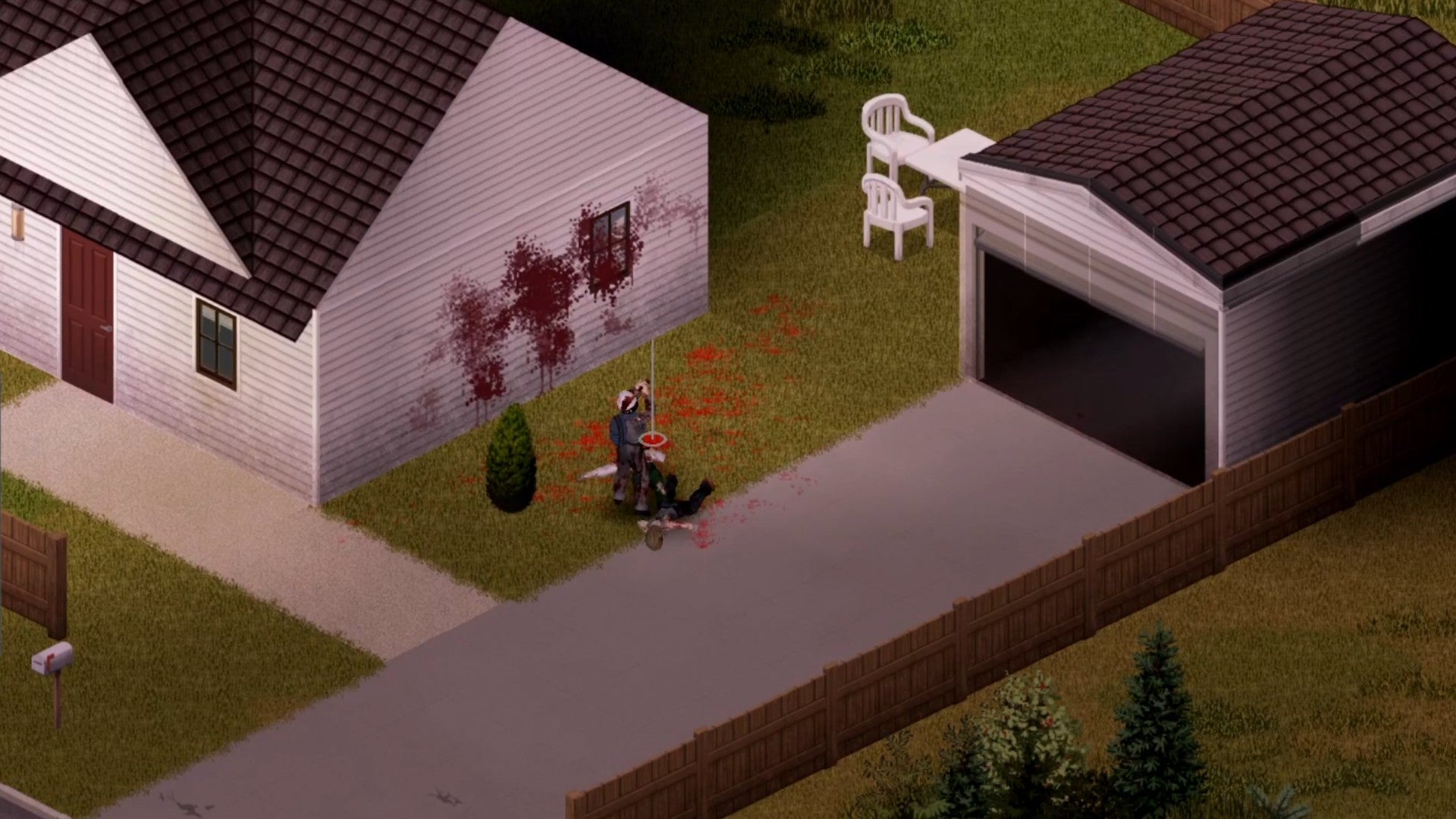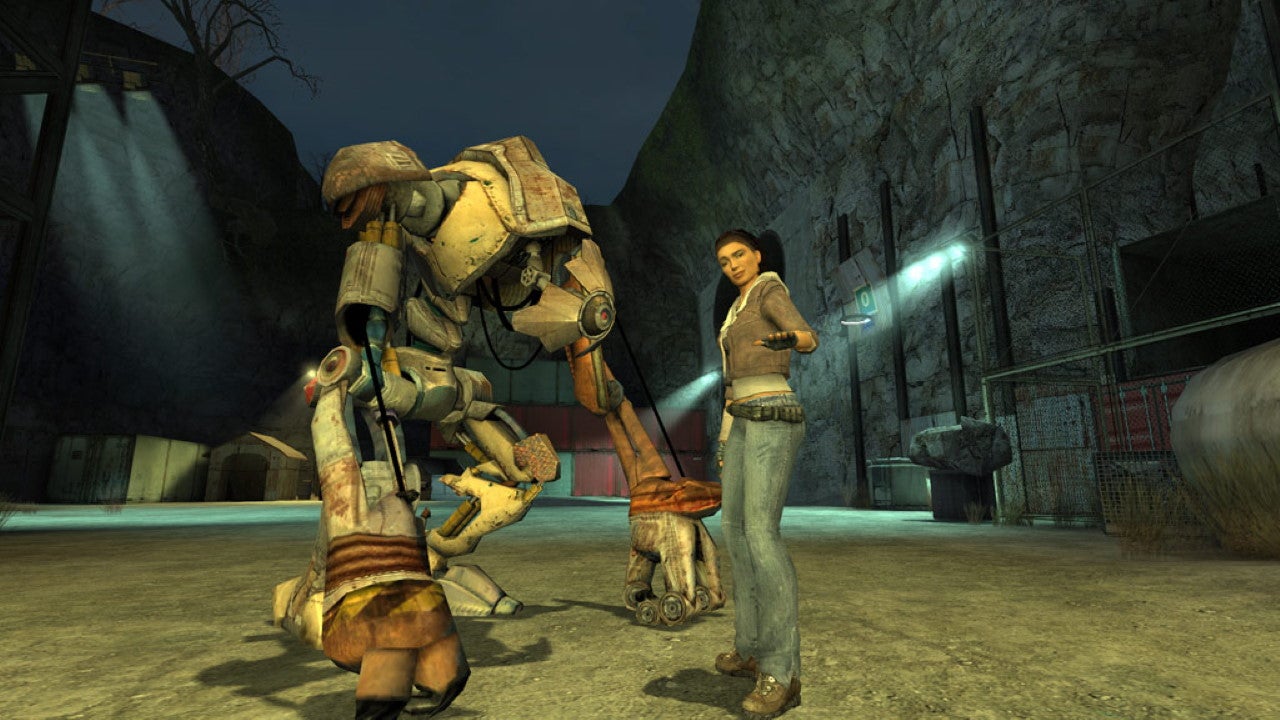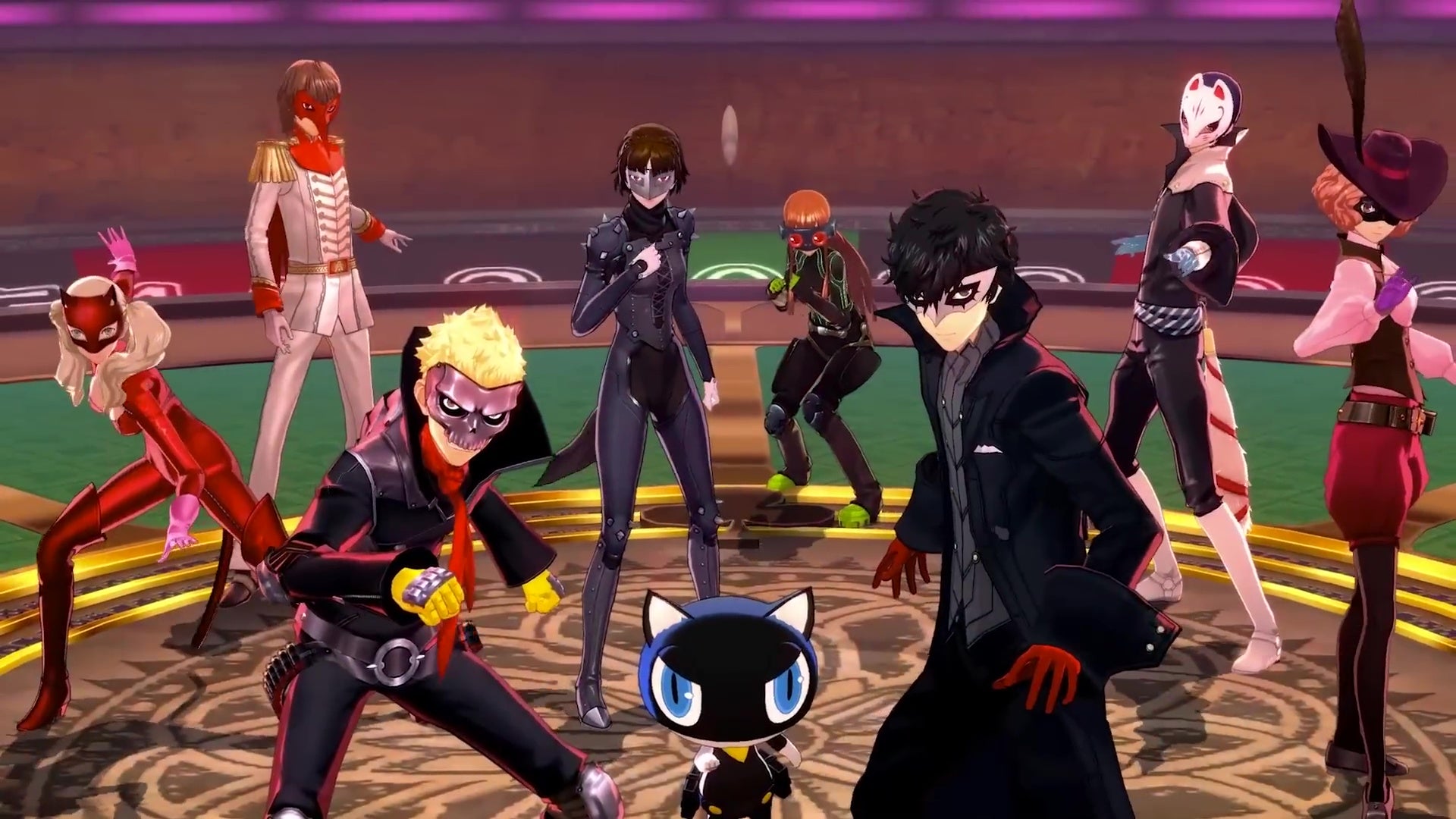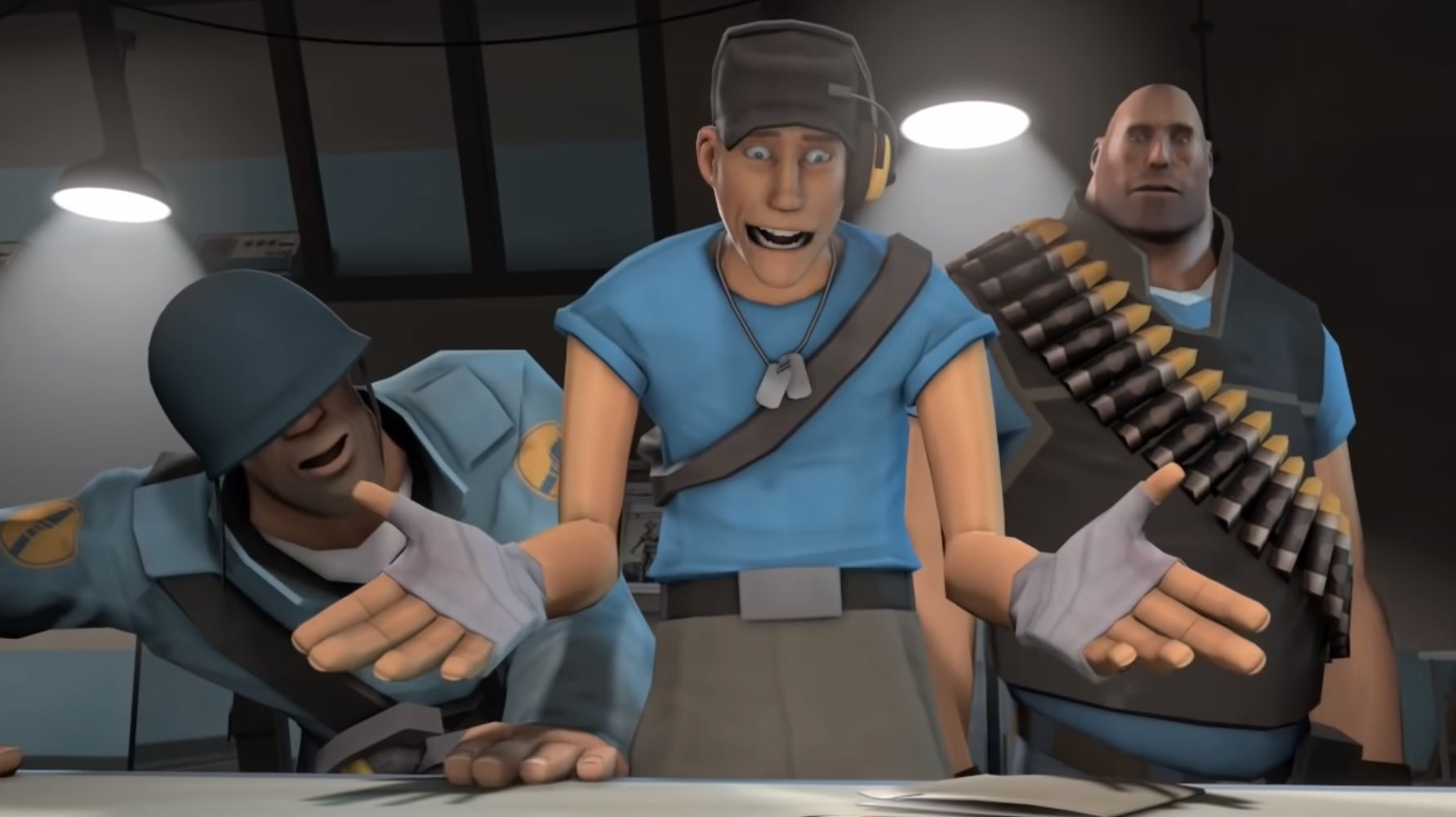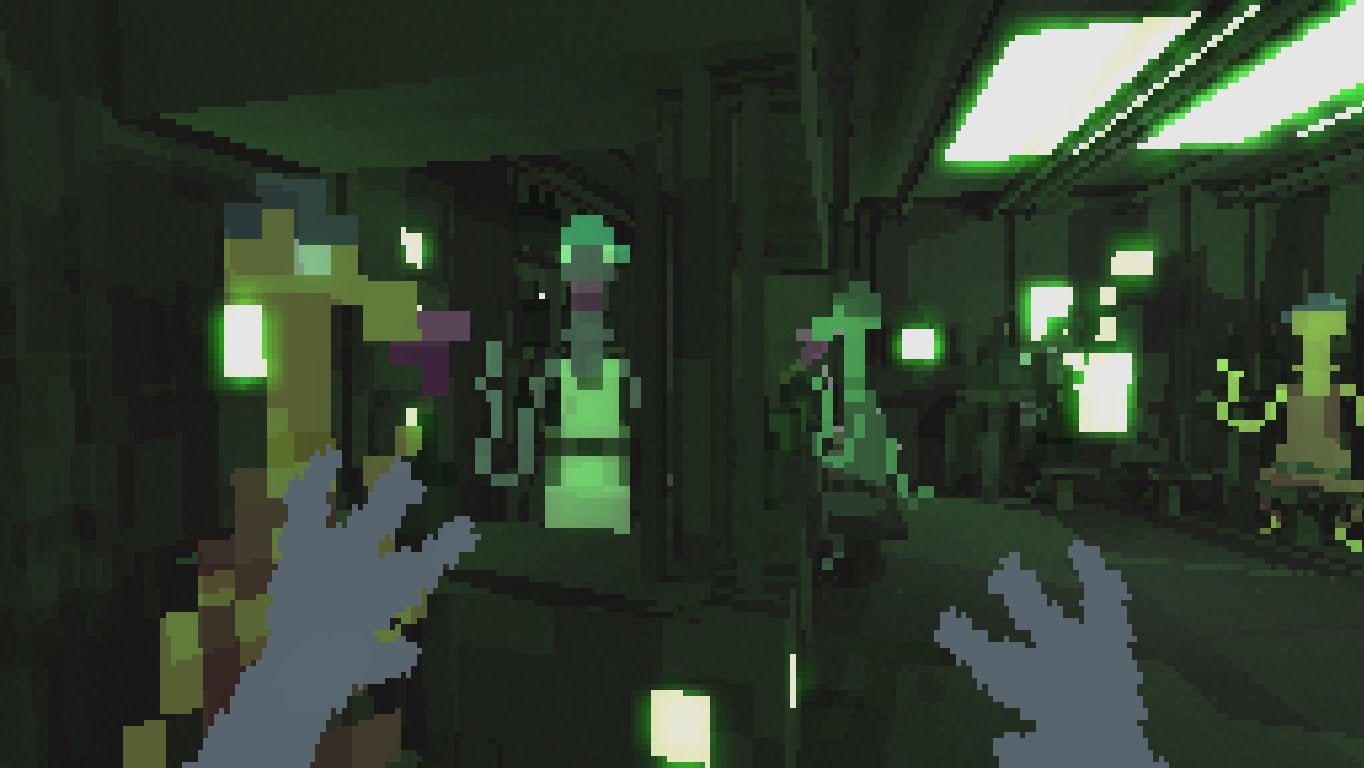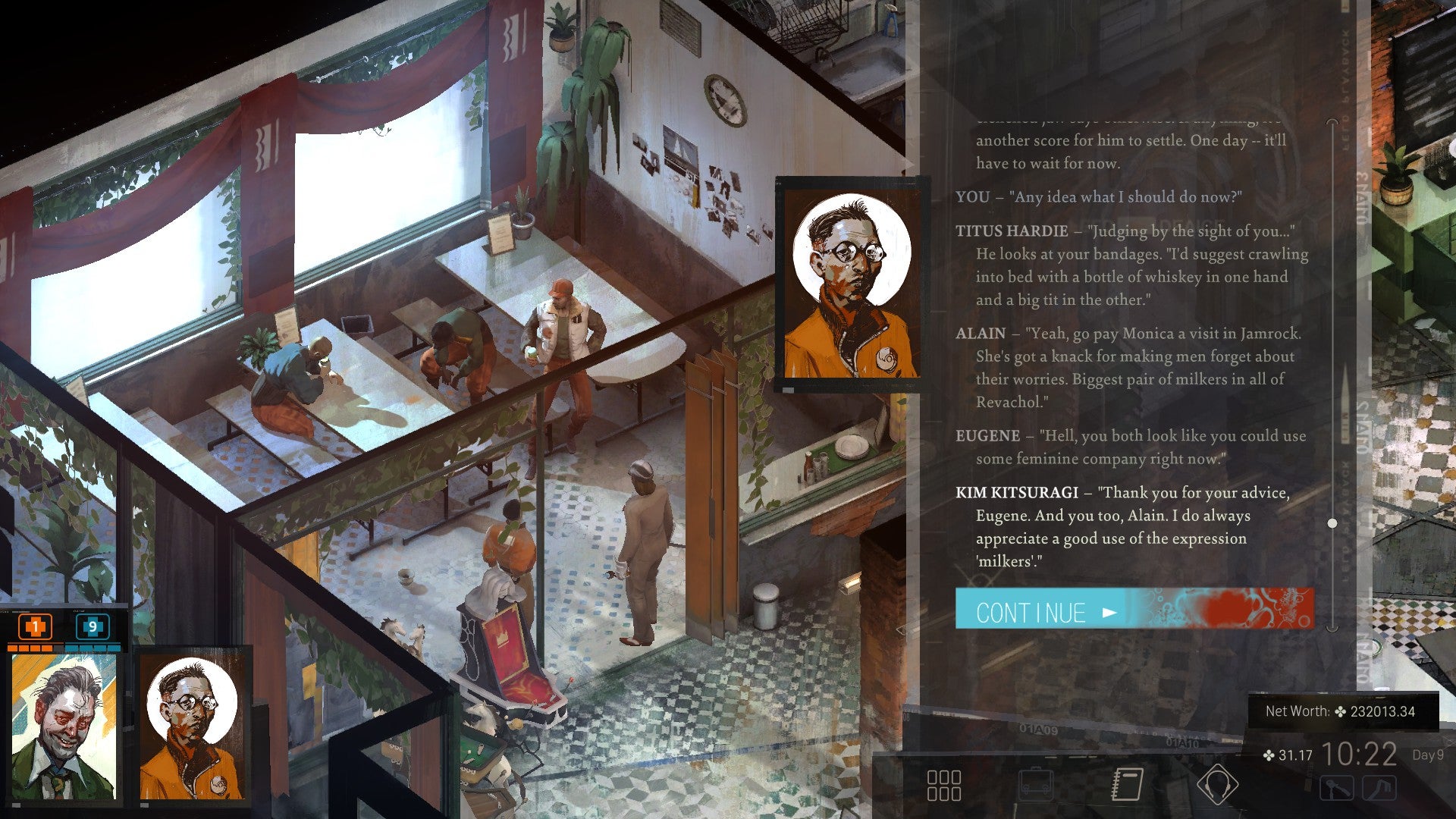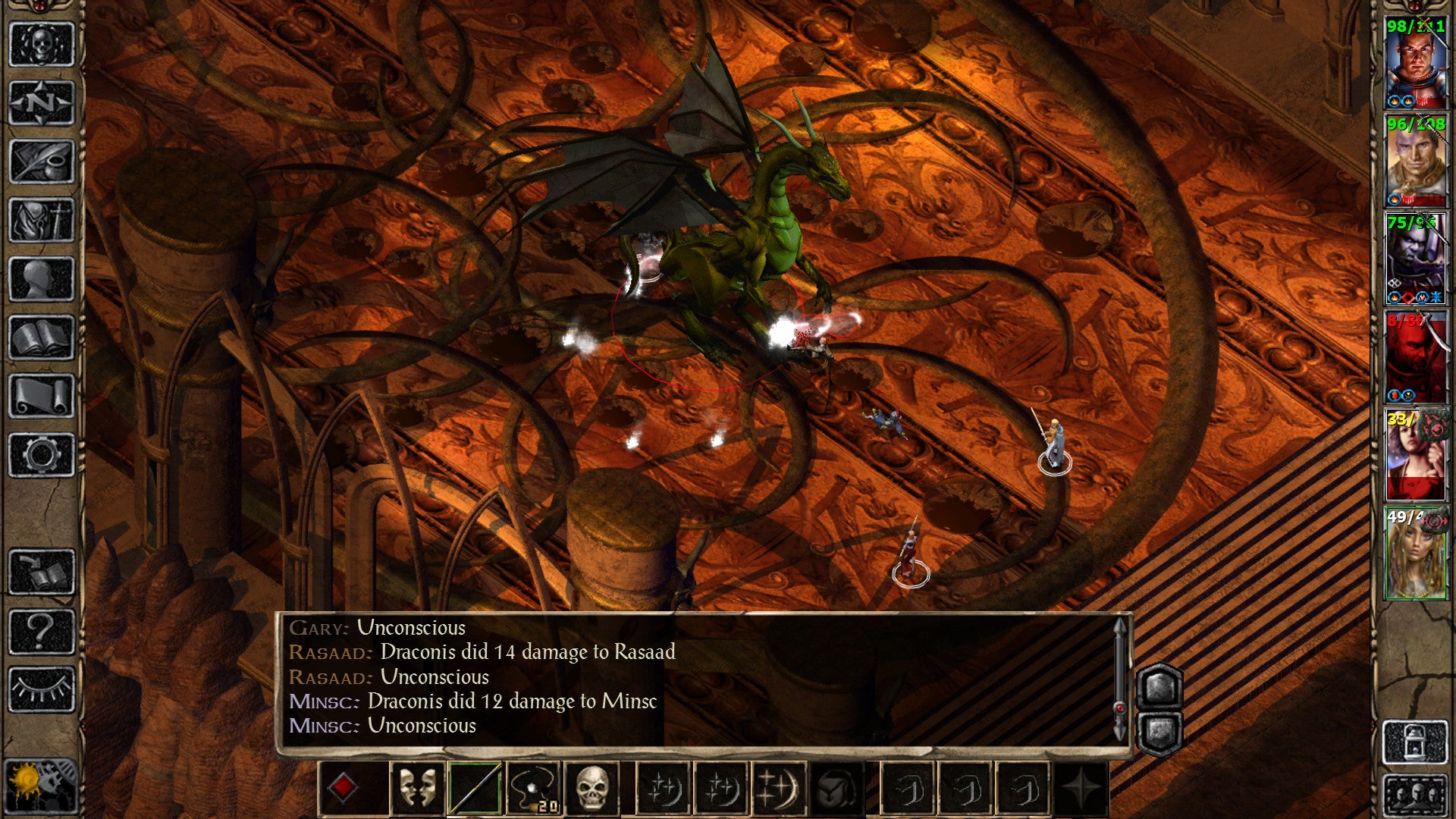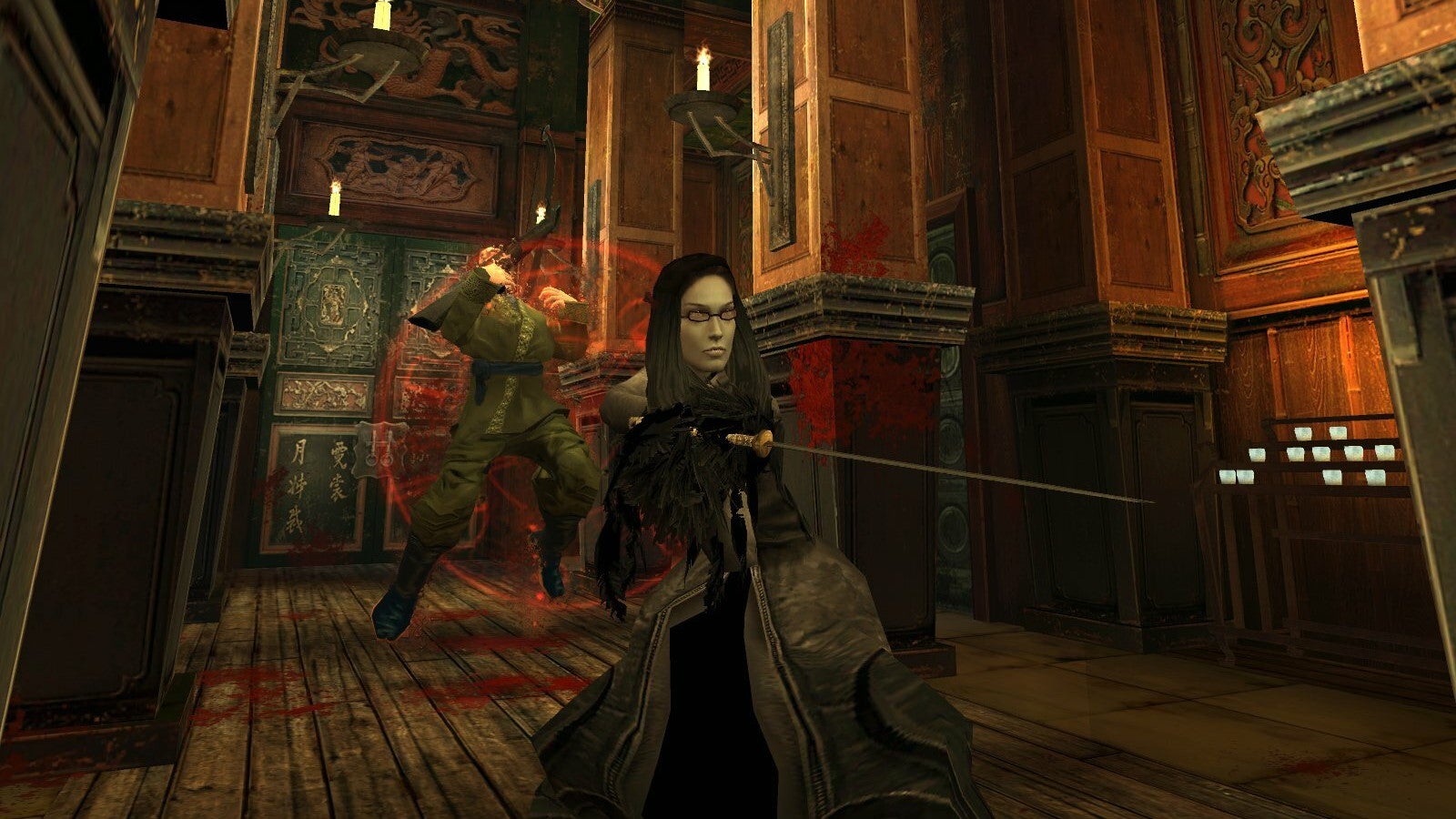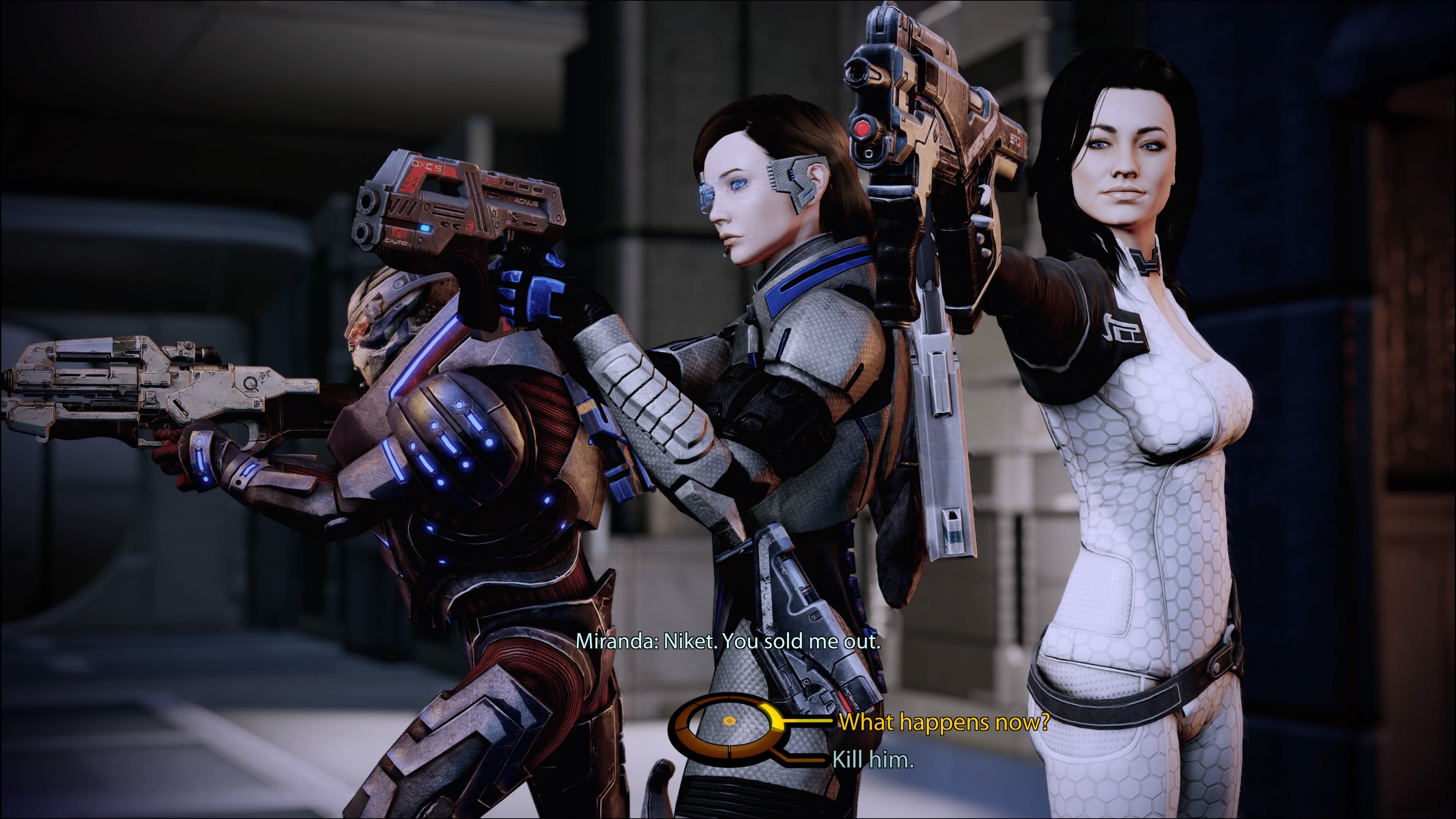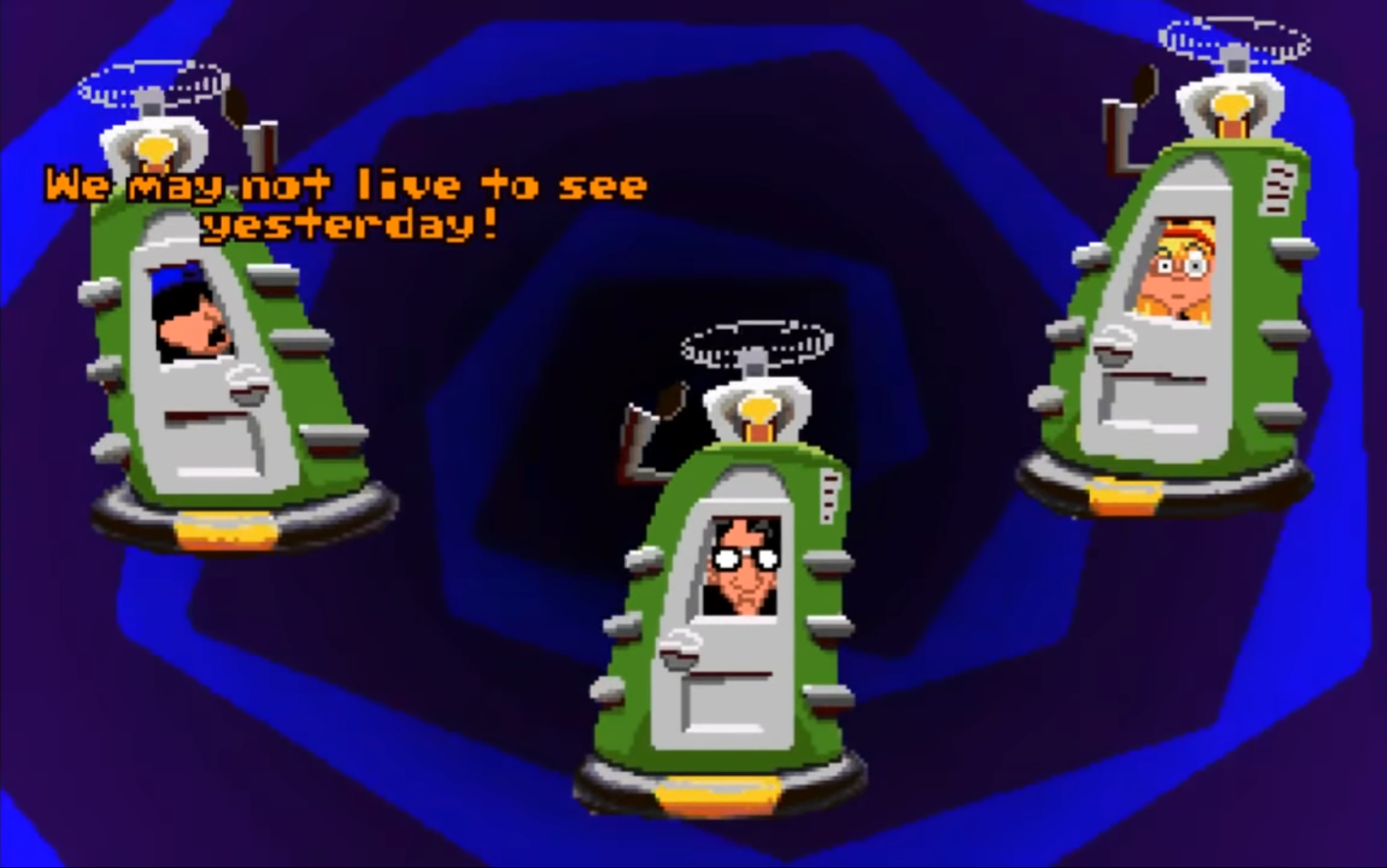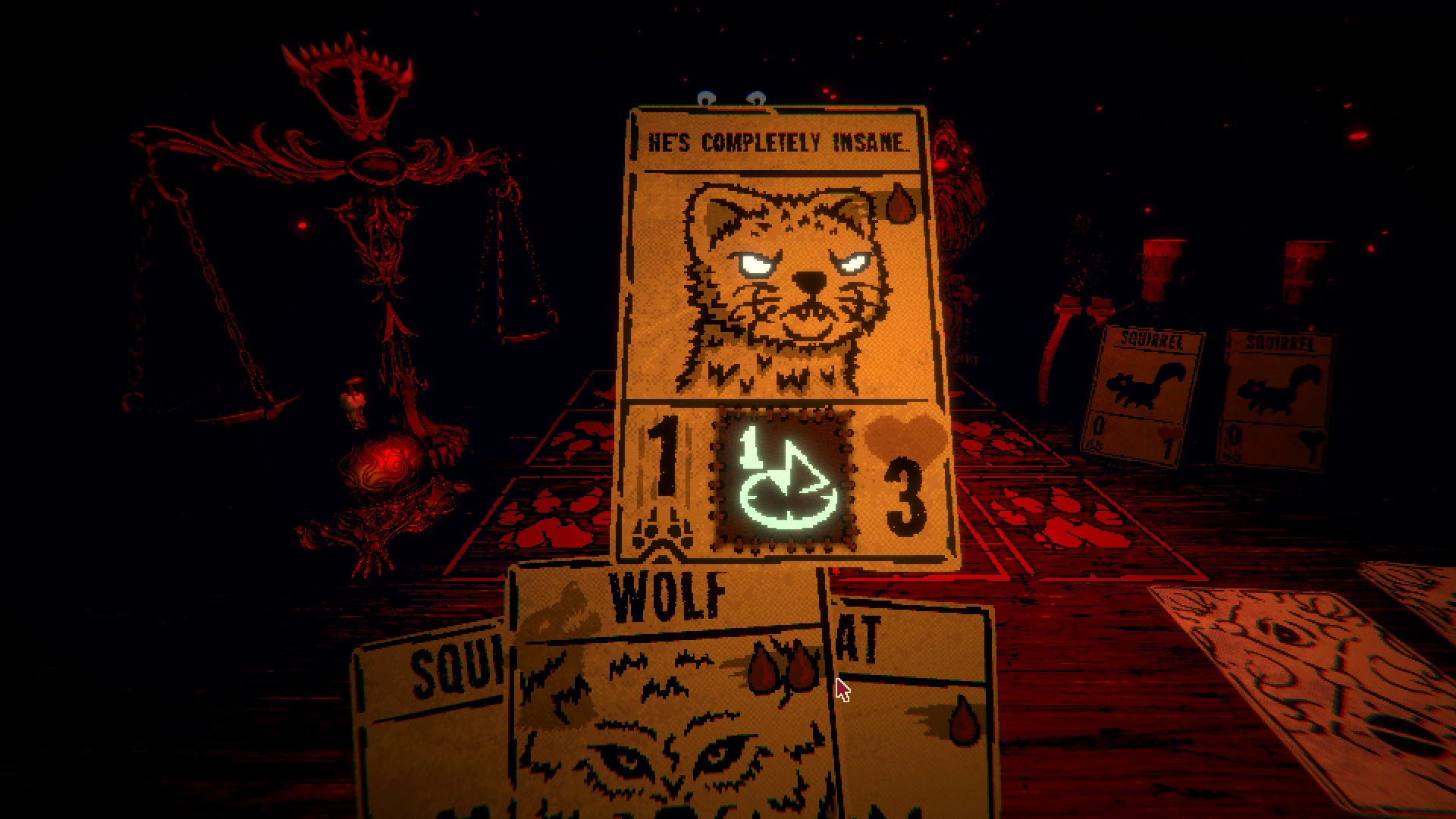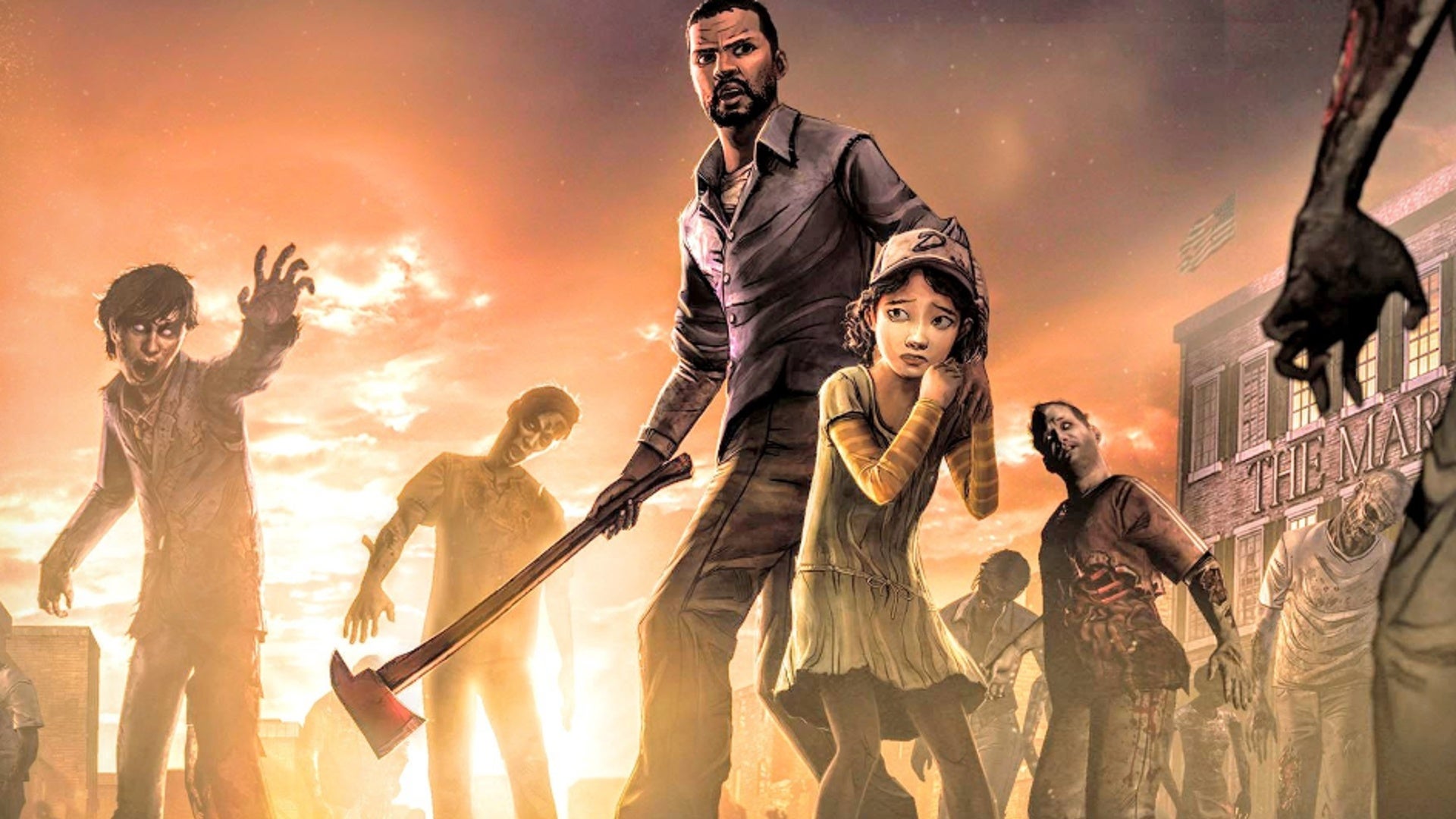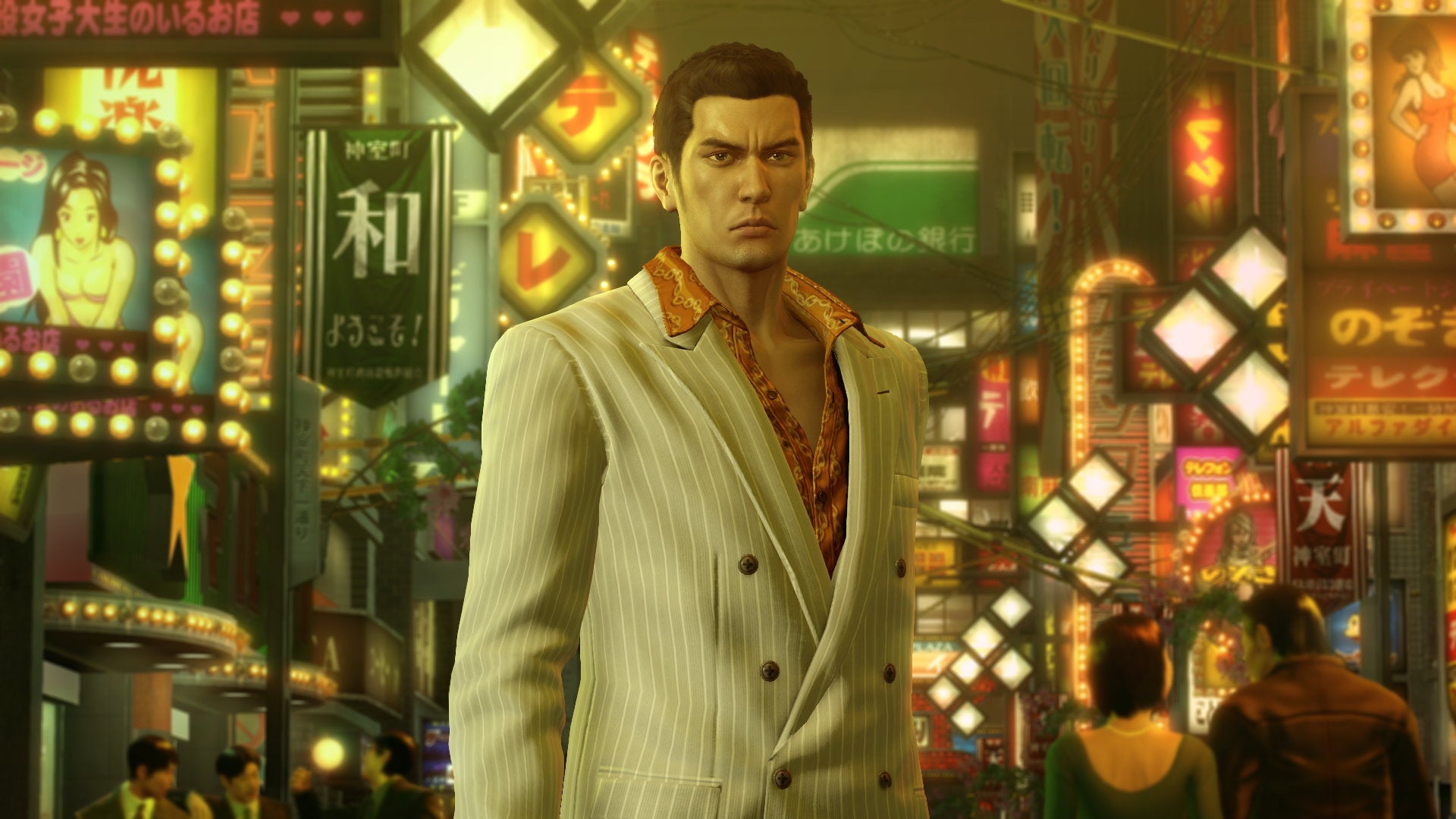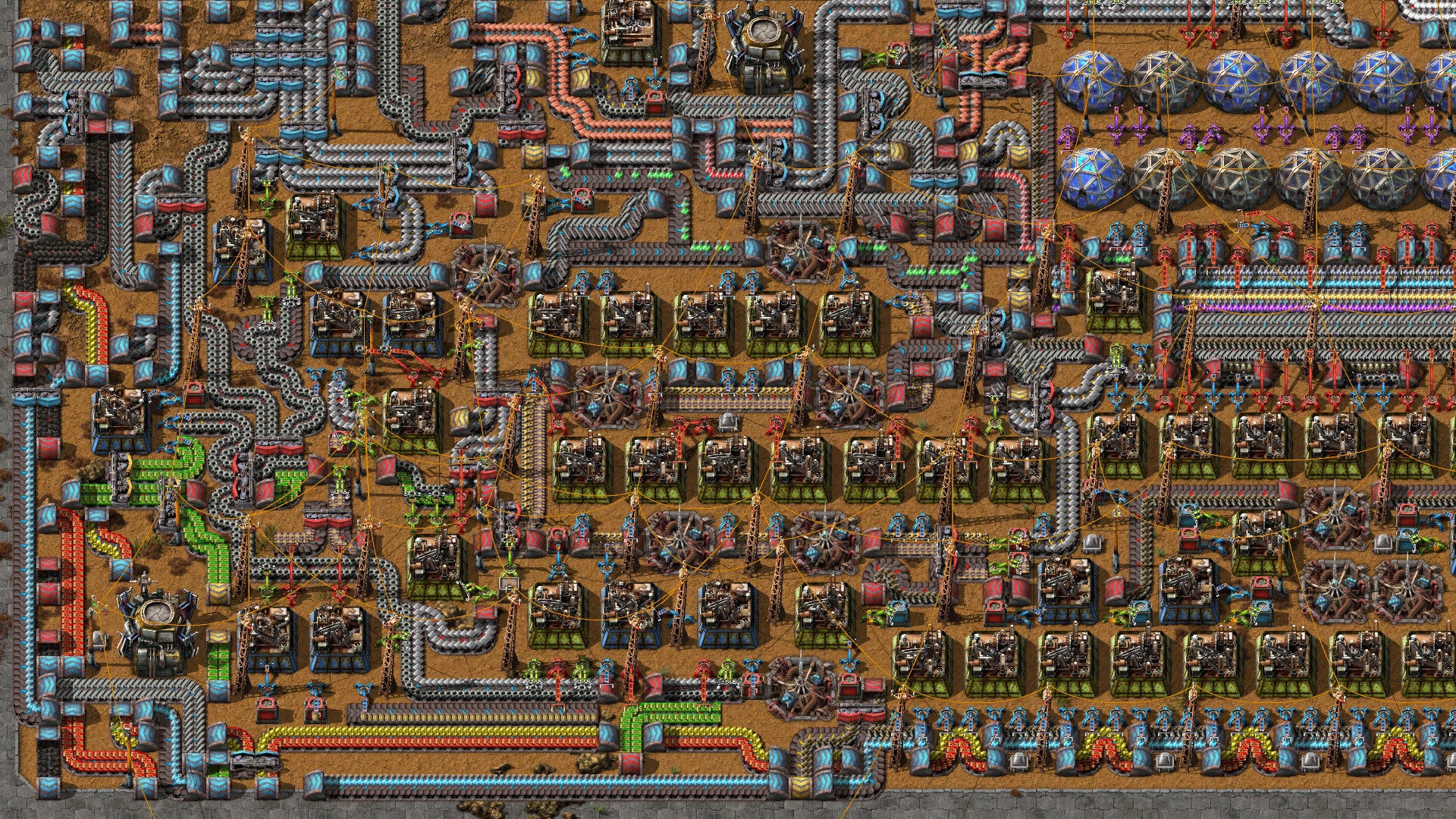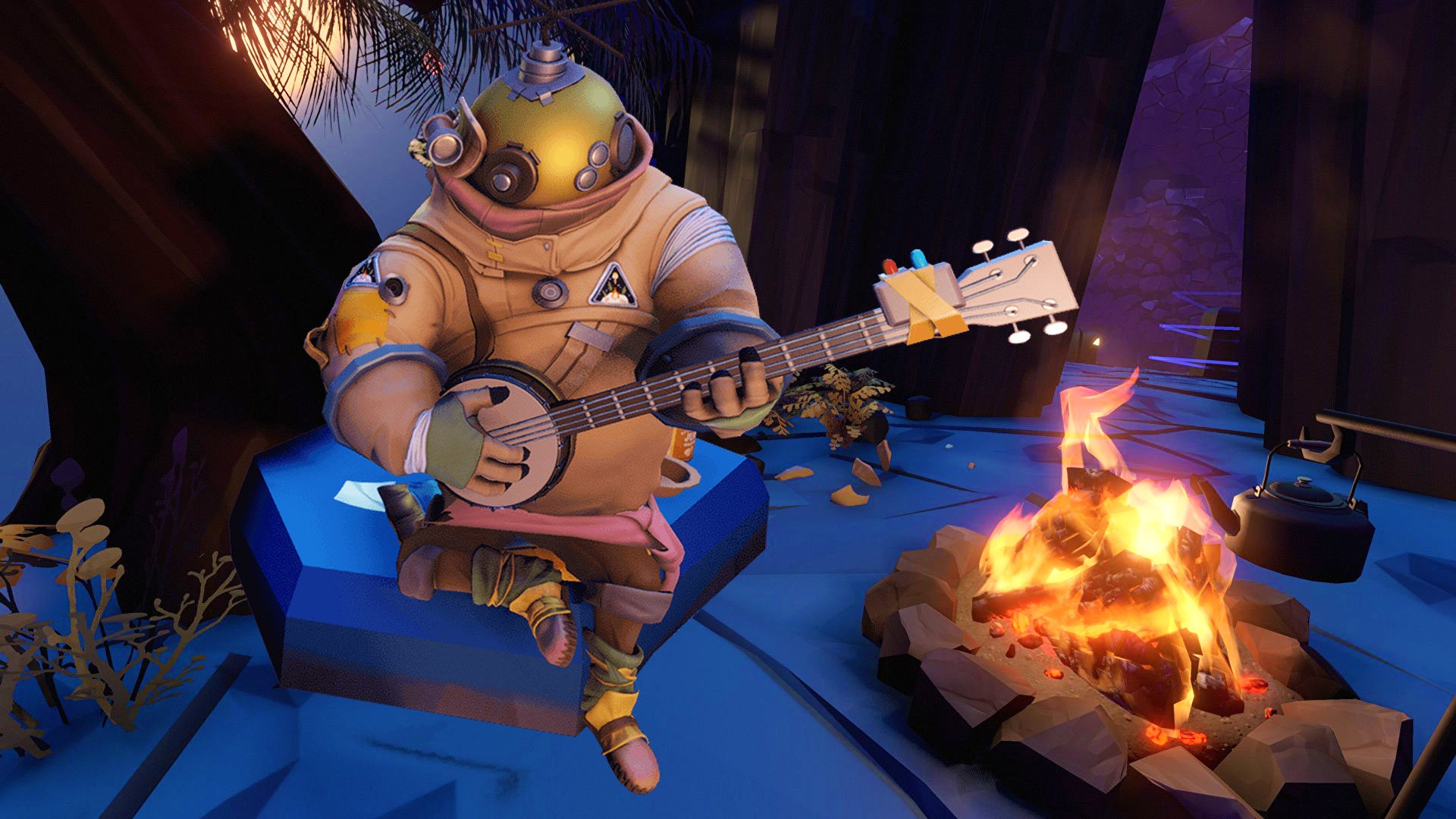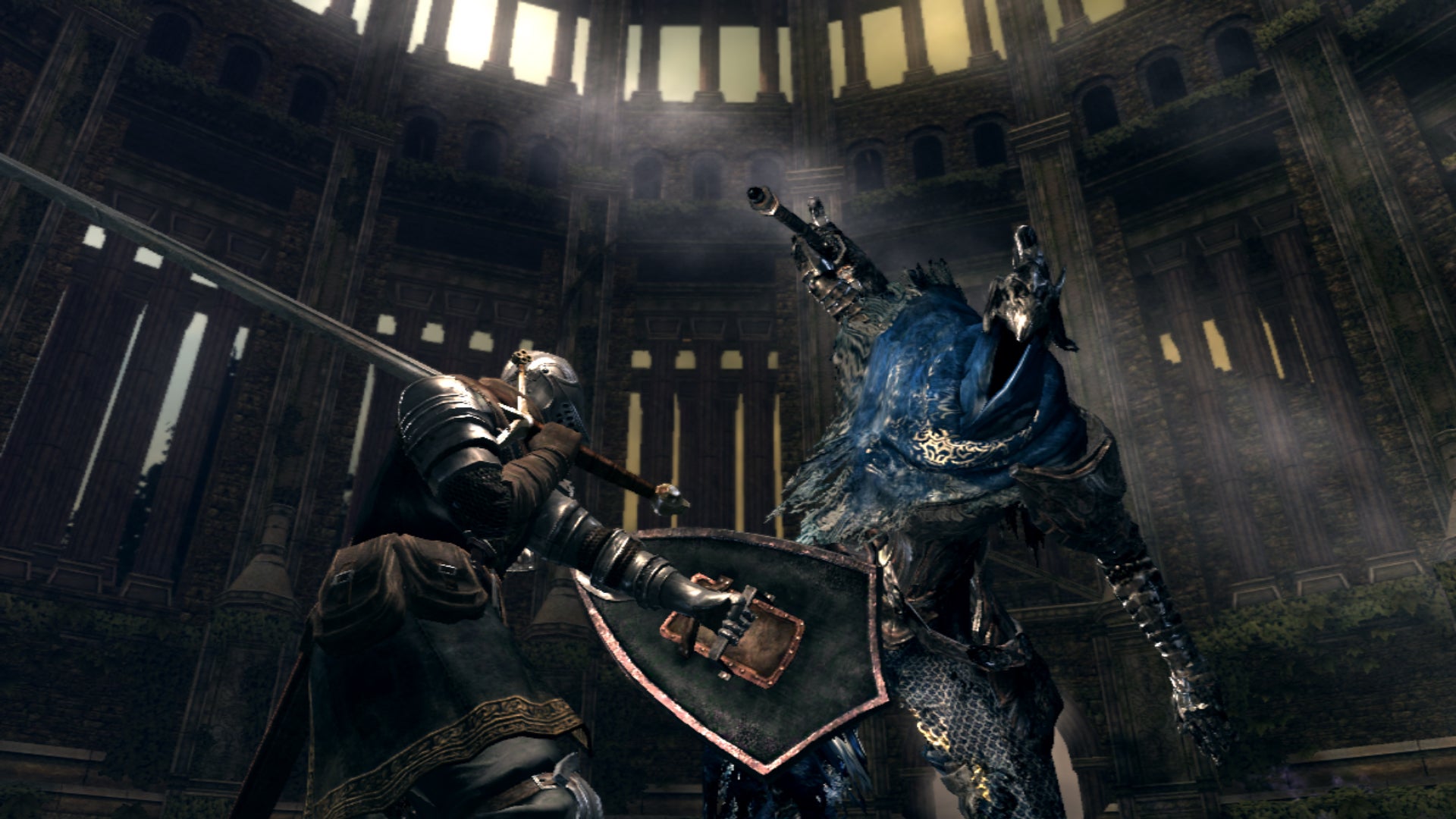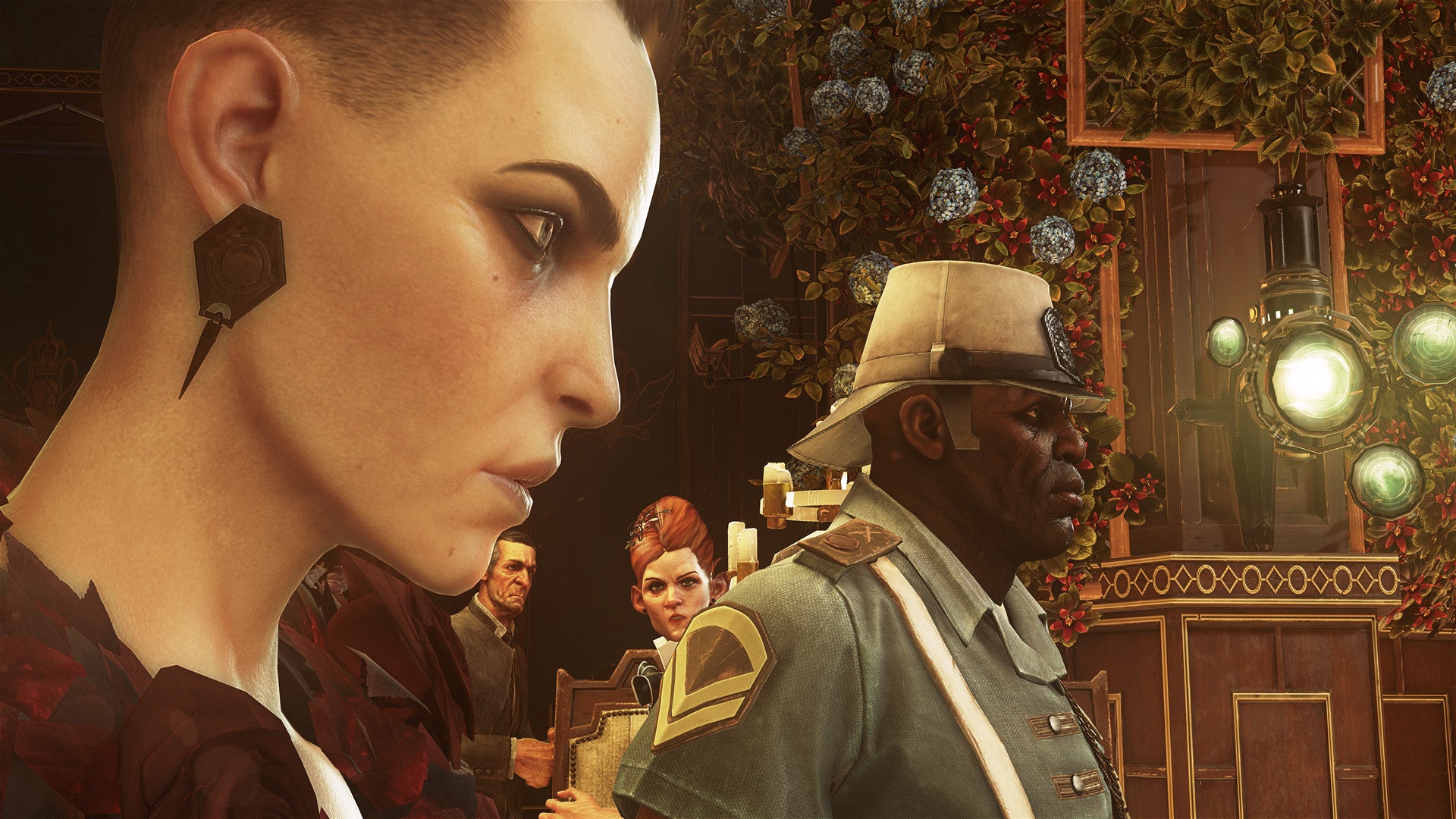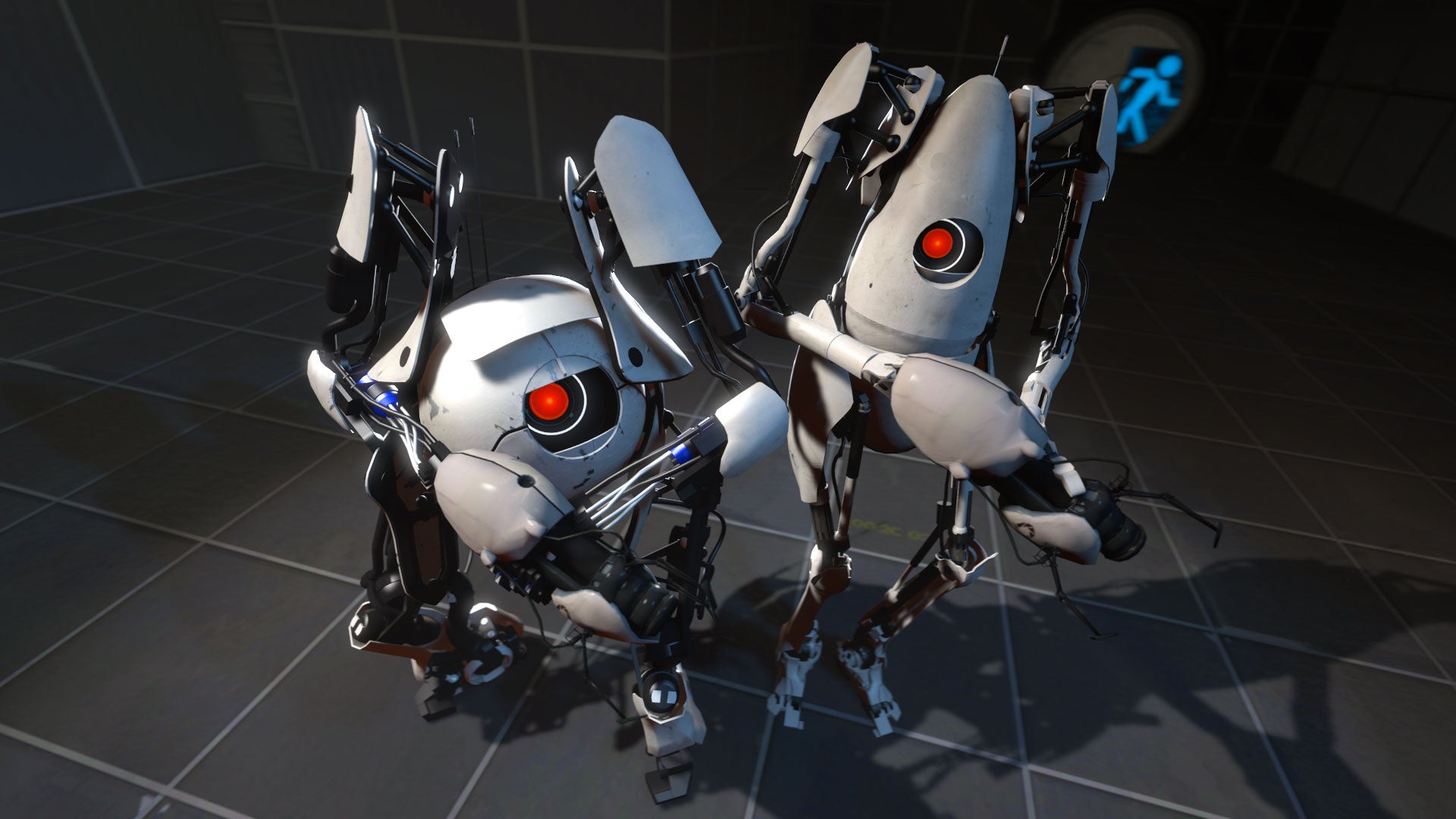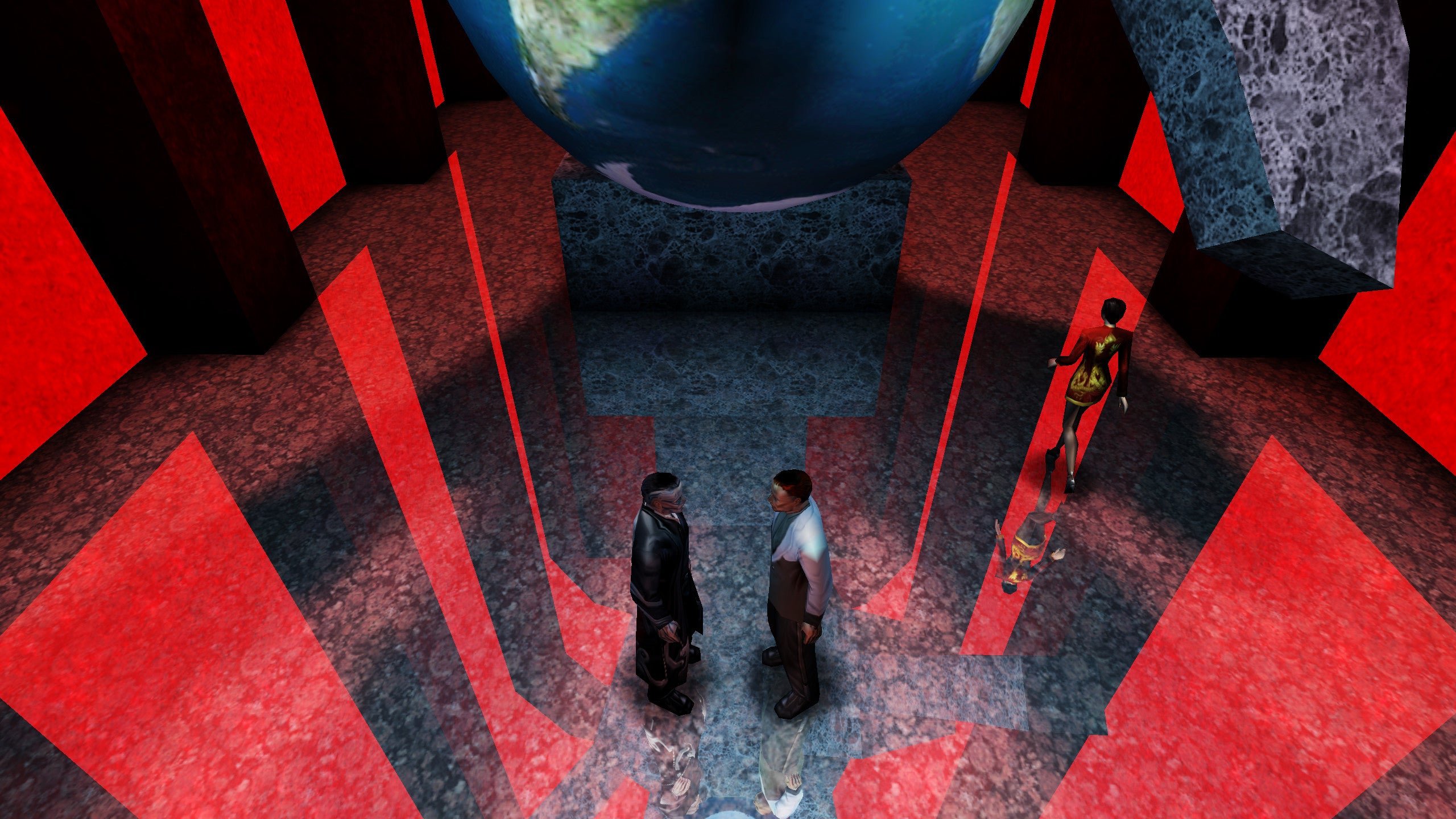The RPS 100
Creating big lists like this is always an exciting process for me. As mentioned in the first half of our ranking, The RPS 100 is a celebration of our personal favourite games. It’s not an objective best games list, nor is it a list of what we consider important and influential. They’re all important and influential to each of us individually, sure, but that’s the whole point. These are the games that we as a team love the most, so there’s naturally going to be a fair number of omissions. It’s also why you might see a lot of less well-known games appearing higher than what many would deem to be stone-cold classics on this list. These are our defining games, and surely that’s more fun than just another trad ‘best’ list, isn’t it? That’s what I love most about The RPS 100. It’s a list that’s designed to change with time, and with the team who compile it.
Just like the RPS 100: Reader Edition (where we count down your favourite games of all time), this list has been assembled by mashing together each RPS staff member’s personal top 10 gaming lists, so this really is a snapshot of who we are as a team right now. We also had a few honorable mentions from last year’s version filling out some of the lower slots, but otherwise this is very much a raw encapsulation of our current tastes and favourites. And if there’s a game you think is missing from this list, that doesn’t mean we no longer like or love it. It’s just at #101. Hand on heart. (And for those of you who decried the very accidental absence of a certain immersive sim last year, make sure you read right to the end. I think you’ll be pleased with what you find).
50. Hitman 3
IO Interactive’s World Of Assassination trilogy has gone from strength to strength over the years, culminating in the most thrilling of their ‘kill the boss simulators’, Hitman 3. This is a game that’s all about dressing up as the chef and sticking a cake knife in a bad person’s back. Or maybe poisoning their champagne. Perhaps you prefer the gentleman’s approach, such as pushing them off the roof of an unfinished skyscraper. Or mulching them into wine thanks to that handy grape press over there. You get the idea. There are so many brilliantly delicious assassination options to pursue here - and thanks to IO’s cunningly all-inclusive access passes to the older games in the trilogy, you can do the deed in all the best missions from Hitman 1 and 2 right from the heart of this third game as well. It is, quite literally, the best of three worlds. Now if you’ll excuse me, I’ve got a lovely bottle of claret that needs corking.
49. Age Of Empires II: Definitive Edition
There’s a reason why people are still playing Age Of Empires II decades after the game was released, instead of the much more recent Age Of Empires IV. The earlier example of the real-time strategy sequels had simply captured the mystery and brutality of the Middle Ages so perfectly already, and to a soundtrack of proper banging choons. “Chaos is a ladder,” said Game Of Throne’s Machiavellian pimp Littlefinger. That’s Age Of Empires II in a nutshell. An experience that’s pure chaos in digital form, heaving with civilisations that each have their own distinct units and flavour, and endlessly replayable randomised maps to conquer. They’re still adding to it, too, with new expansions even after nearly a quarter of a century. Yes, there’s a good reason people are still trying to play Age Of Kings. They’re still trying to climb the ladder.
48. 2:22am
2:22am is a game I played at possibly the perfect time in my life. Sleeping too little and drinking too much, a series of vignettes blending reality, dreams, and VHS video was spot on for feeling lost and trapped in life. But any game can hit that hard if it catches the player at the right time. I keep coming back to 2:22am across the years because it’s still the game which most feels like recurring dreams. Each playthrough, around its core (real?) plot arc, it semi-randomly draws a selection of vigenettes from a larger pool. Across each playthrough and especially across repeat visits, you’ll find new surprises, familiar scenes, and new twists on scenes you know, with elements thrown together and drawn out in new ways. It’s small, simple, and such a haunting mood that I still think of it years later.
47. Soma
Whereas Amnesia was a first-person horror game about forgetting things and hiding in cupboards, Soma shifts its focus to sci-fi horror at the bottom of the sea. There aren’t just disturbing monsters that make your screen shiver and go all bleary here though. There’s also a more existential fear present in this crusty ruins, which only gets more intense and profound as the game goes on. It starts innocently enough - you are a regular Joe having a regular hospital appointment for a regular MRI scan, but a blink of an eye later and you’ve woken up in a deep sea facility 100 years in the future. Mysterious, yes, but not frightening. Yet. As you tramp through the zapping, messy remnants of a malfunctioning research station, you start to realise the facts. With each onward step the story cranks up the dread. This is an unsettling game about an identity crisis like no other, and it has the punchy ending BioShock wishes it had. A last-minute gamble that will leave you both satisfied and troubled all at once.
46. Umurangi Generation
Where many games seem to flinch at being seen as political, Umurangi Generation fully embraces it. Jet Set Radio meets Evangelion in this stylish first-person photography game where you get to shoot photos on the go in a troubled city. Your urban surroundings are filled with concrete high rises, neon signs, and grungy graffiti and getting the perfect shot may require you to expertly navigate the city. Dropping down from ledges, balancing on metal beams, and jumping from one balcony to the next - it’s basically a photographer’s dream playground. Photo objectives cleverly guide your eye to what’s really happening within the walls of the city, from armed militia to solemn candlelit memorials. Taking pretty photos is fun, but in Umurangi Generation they have a purpose, and that’s to document what’s happening to this city and the creative young people who are helpless to stop it.
45. Danganronpa: Trigger Happy Havoc
Danganronpa has a reputation these days as the much-memed series where eccentric high schoolers brutally murder each other because a teddybear tells them to. But sensationalist anime games are hardly an underrepresented genre, yet Danganronpa: Trigger Happy Havoc has stood the test of time to emerge as a classic of the visual novel medium. Don’t get me wrong: Danganronpa works best when it’s focussed on being a dark comedy thriller, and its attempts to be serious don’t always land. That being said, there’s a surprising core of emotional realism to this game, even on occasions when the specifics get bungled. This isn’t like Ace Attorney, where everyone shakes off a friend’s death at the end of a trial knowing they’ll be back to visit in ghost form sooner or later. Danganronpa contains some really affecting depictions of grief and the faces it can wear, and stays with you much longer than you’d expect from the shock-tastic cartoonish premise.
44. Hades
Hades may have fallen a little further in the underworld since our last version of this list, but this isometric roguelike is still an absolute masterclass of its genre - and the best way to annoy your dad, too. As the little-known Greek god Zagreus, you’ve got to stab and dash your way out of hell, with each death serving as a reset button for its intense, but moreish combat. Of course, nobody can actually escape Hades, don’t be foolish - and why would you want to, when so many interesting people live down here? Naturally, not all of its deities and demi-gods want to help you out, but the way you find yourself clashing with old flames time and time again, dashing back and forth across the room to avoid a literal bullrush from Asterius the Minotaur or dodging a barrage of pink spit from a bony Hydra’s head, just makes those relationships stronger and more personal over time. Get it wrong and its another clamber out of the blood pool at the start of the game. Another disapproving glare from dad.
43. Paradise Killer
What if Suda 51 created a Phoenix Wright spin-off for the Dreamcast? We reckon the result would look a lot like Paradise Killer, a bonkers detective game from Kaizen Game Works that is stunningly singular. After an eon in captivity, investigation freak Lady Love Dies returns to Paradise, an island within a pocket dimension where a council of weirdos harvest the faith of kidnapped humans in an attempt to resurrect a long-dead god. After the majority of the island’s upper echelon is brutally murdered behind a locked door, it’s your goal to find out whodunnit. Paradise is dripping with its own mythology, making understanding the game’s own logic the first step in your attempt to uncover the culprit. As the sole arbiter of justice, you can choose to accuse at any point as long as you hold the evidence to support your claim. The game does have a “true” ending (that is absolutely worth uncovering) but ultimately the decision is yours to make.
42. The Elder Scrolls V: Skyrim
You are the Dragonborn. Your superpower is that you talk loudly and it hurts people. This first-person fantasy RPG is the fifth in a beloved series, and takes its player to Skyrim, a frosty, mountainous region of Cyrodiil, inhabited by the rebellious and Viking-esque Nords. Also, dragons. This is a massive open world, filled with off-the-beaten-track adventures, and ripe for modding. Skyrim is the best example of a single player phenomenon, the go-to classic for many, played and replayed so many times that the developers feel it savvy to re-release it seemingly every couple of weeks. Still, in time it may become the most replayed game in history.
41. Life Is Strange
Life Is Strange games are a reliable source of all the feels: bittersweet choice-based bildungsromans filled with friendship, romance, mystery, and superpowers, set against gorgeous backdrops of contemporary Americana. All the games in this franchise are outstanding in their own way and can be enjoyed stand-alone, but it’s definitely a case where starting from the beginning helps you to get the most out of call-backs connecting all the stories together. Original protagonist Max’s time rewind has yet to be beaten for the most entertaining power in the series, and her ability makes Life Is Strange one of the few narrative adventure games to really justify the use of branching storylines, by allowing you to explore alternative outcomes without breaking the fiction. The first game is also, for better or worse, the LIS entry with the most traditional point-and-click puzzle elements, making it a useful starting point for old-school fans keen to check out the modern evolution of the genre.
40. Horizon Zero Dawn
I’ll be the first to admit that one of Horizon Zero Dawn’s most central pillars sounds like a joke, one a frustrated designer might throw out in an overrunning meeting. Robot dinosaurs, yeah? Put ‘em in along with the laser skateboards and airhorn explosions. But they’re not a joke: their hulking hyperaggression and intricate, partially dismantlable designs make for some of the most breathlessly entertaining fight (hunt?) scenes in modern open world-dom. This particular open world, a post-apocalyptic US retaken by Mother Earth in all her grassy, snowy, jungle-y splendour, also happens to be a joy to explore. I believe this is still the only game I’ve ever cleared of quests, sidequests and errands before simply wandering around, enjoying the scenery and soundtrack, just because I didn’t want to leave.
39. Phasmophobia
Phasmophobia is the champion of creating a truly unsettling atmosphere. The steady hum of audible silence drowns out all other noise as you enter one of its haunted abodes. Darkness envelopes every room, leaving nothing but nightmares lingering in the murky corners. It makes every attempt to unsettle your troupe of ghostbusters, and in my case, it always succeeds. Your task is to investigate a haunted location for evidence of spooky activity. Finding that evidence will force you to poke around in the dark, though, which gives the ghost plenty of time to make contact. They might start small, flickering the lights or tossing a plate across the room. Or, if you’re particularly unlucky (like me), they might stare at you through a tiny crack in the bathroom door before attacking unprovoked. They’re unpredictable. They’re terrifying. They kind of convince me that ghosts are actually real. Most sessions end with me searching my own house for similar signs, and that fear tells me Phasmophobia is a winner.
38. Homeworld
Manuals. Remember them? Homeworld’s manual was amazing, set out like a history textbook intended for the Hiigarans who’d been exiled to the desert planet Kharak thousands of years earlier. You can search it up easily enough online if you want to see for yourself, but I’ve still got my copy decades after I first played Homeworld. The manual totally enthralled me, and the excellent, accomplished three-dimensional strategy of the game it was included with didn’t hurt either. Neither did the personal sacrifice of Karan S’jet in becoming Fleet Command, voiced capably by Heidi Ernest, a protagonist who physically embodied your Mothership base throughout the campaign. Studying the fictional background to Homeworld’s mission to reclaim the ancestral world of your people helped to ground the game, which could have easily ended up as an interesting strategy experiment without all that gosh-darn context. That’s why manuals were important. Bring back manuals, kids.
37. Cities: Skylines
What is the best method of urban waste disposal? Perhaps a single, centralised landfill site with garbage truck routes spreading out like tendrils. Or maybe multiple smaller rubbish heaps in a secluded zone of each suburb. No. The correct answer is to dedicate an entire offshore strip of land to your city’s trash and call it “Stink Island”. Cities Skylines presents you with more than the problem of smelly litter. How far should your business district be from housing? What is the most efficient way to get electricity to the retail hub? How many roundabouts is too many roundabouts? At its cosmopolitan heart, this is a management game about making people happy en masse (or at least vaguely satisfied). It is the best building game for the municipal-minded and it staunchly refuses to guide your planning. This is your sandbox, so build some castles. Or, uh, some incinerators.
36. Left 4 Dead 2
Valve’s co-op zombie shooter wasn’t bundle in with their infamous Orange Box collection of games – Left 4 Dead 2 came out a couple of years too late - but it still feels like one of the gang, doesn’t it? Part of that era, that graduating class. Getting from one side of a level to an extraction point on the other, racing through a burning hotel, a fairground, a dark swamp, doesn’t sound so hard, but when you throw hundreds of zombies in the way it becomes more of a challenge. Left 4 Dead 2 took everything from the original and amped it up, introducing three new special infected (including my personal love-to-hate favourite the spitter) and the AI game director 2.0, able to throw new zombies in your team’s path based on how well you’re doing, and even alter things like the weather to make a dynamic challenge. Even though it’s over a decade old now, and many other games have since iterated on its template, Left 4 Dead 2 is still the first port of call for many looking for some co-op game funsies. It’s a heady blend of frantic shooting, creepy environments, and zombie blood and guts going over the place that remains perhaps unmatched to this day.
35. Doom II
Has there ever been a more perfect weapon in an FPS game than the Super Shotgun? Nope, don’t even try to answer. It was a rhetorical question. Of course, the Super Shotgun has since gone on to become a staple of id’s Doom series, and you might be wondering why 1994’s Doom II is on this list as opposed to, say, the mroe recent and also excellent Doom Eternal? It’s a tough choice, but as much as we love Eternal’s meat hook combo, Doom II is the one we keep returning to. It remains an absolute beast, a pacy and brutal shooter that’s solid and steady, simple to pick up, challenging if you want it to be (how many levels have you scoured to 100% completion on the highest difficulty setting, mum?) - and it has the best shotgun. Moderno-Doom came close to supplanting it during our discussions but there’s something about the straightforward kill-running of Doom II that has kept up its bloody momentum to this day.
34. NieR: Automata
Nier: Automata is a mercurial beast that refuses easy classification. From the opening sequence, you might deduce this is a story-led bullet-hell shooter, but delve a bit deeper and you’ll find a hack and slash action RPG that’s also a time-looping elegy about the nature of life, consciousness and seizing hold of your own destiny. One of the (many) wonderful things about Nier: Automata is going into it as blind-folded as your protagonist - a sightless android sword warrior called 2B. This is a world where the words “machine”, “robot”, “drone”, and “android” are not necessarily synonyms, and the war in which you are fighting makes less sense the more you fight it. Funny and touching, this is a game about humanity with nary a human in sight.
33. Diablo 2
This most scarred veteran of action role-playing games has recently been Resurrected with a fresh remake, but it’s the original that we still look back on most fondly. Maybe it’s the crunchy loop of “kill, collect and clear outta there” or maybe it is the just as crunchy sound effects that made every item pinched and every enemy batted feel like you just cracked open a delicious little pistachio of dopamine. Granted, newcomers to this series (or dungeon-crawling ARPGs in general) are perhaps better off starting with Diablo 3, the modern sibling with shinier armour and all his teeth still intact. But Diablo 2 is still the better game because… well, because our deputy editor Alice Bell said so.
32. Titanfall 2
Titanfall 2 could be two games and they’d both be excellent. It’s an exquisitely crafted movement shooter, all nicely weighted wallruns and kneelslides, married to a stompy mech fighter that slows down the pace in exchange for more tactical, almost timing-based skirmishes. The original Titanfall handled this dynamic, semi-asymmetrical multiplayer brilliantly, and the sequel – with its more distinct Titan chassis and loadouts – refines it to near perfection. The campaign, too, is worth playing by itself. If anything it’s even more essential: there’s still a blend of crisp on-foot combat with larger-scale mech wars, but it’s constantly kept fresh by a well-paced series of mechanical twists and some genuinely creative level design. And yes, I’m honest, I did like making friends with the robot.
31. Rocket League
The quintessential car football game. Forget your FIFAs and your eFootballs. This is the kind of modern day kickabout anyone can boot up and play (literally). With two to four players per team, each player uses their own toylike rocket car to hoof a ball around a stadium encased in transparent walls. The goal is goals. A simple concept, but one that Rocket League has clearly perfected the moment you start playing. You can boost your car with a tank of refillable rocket juice, ping the ball with stylish flips, and soar through the air like an ascendant eagle looking for a header. There are plenty of skilled players out there, but play with friends and it’s the perfect way to idle away an evening.
30. Hypnospace Outlaw
Coolpunk is dead, BWL. Long live Coolpunk. Hypnospace Outlaw’s greatest strength is creating a rendition of the world wide web circa 1999 that is believable yet completely unrooted from our own reality. Accessed while you sleep via a lo-fi headband, Hypnospace is geo-cities described to you by someone suffering from the flu. Playing as an enforcer, an unpaid internet cop hired by dubious tech company Merchantsoft, it’s your job to hunt down digital misdemeanours. You do this by exploring web pages, clicking hyperlinks and following breadcrumbs using Hypnospace’s built-in search function. The game’s central narrative is compelling enough, but the real joy comes from picking through the game’s expansive number of websites. On the one hand Hypnospace is quirky, funny and surreal. But it’s also empathetic, stuffed full of stories about real people looking to belong in an exciting new frontier for humanity. It’s a time capsule of an era that never existed, yet one that still feels tangibly real.
29. BioShock
The twisted collision of Jules Verne and Ayn Rand, BioShock is a first-person shooter that immerses you beneath the waves with a big wrench and a shotgun. It still suffers the indignity of being one of the most discussed games in writer and designer circles, but if you can wade past its ocean of “here’s my take” thinkpieces, BioShock continues to delight. You’ll be too busy hacking helicopter drones and setting oil on fire and getting both heebies AND jeebies from the excellent horror-flavoured set pieces to think about those lukewarm takes from ten years ago. If BioShock is a theme park ride of animatronic story-telling, then it is a really good ghost train. You should leave your skepticism on the grass outside and embrace the nervous scares. It is only fair that a game with such a strong opening (and one infamous moment in the mid-game) be cursed with a limp finale. You can’t have everything.
28. Dota 2
Sustained for years on ever-shifting metagames and seemingly bottomless strategic depth, Dota 2 is still delivering the kind of arena-based magician warfare that you can lose yourself in for weeks. There’s always a fun new item combination to try or a hero to improve with or some outrageously cheeky tactic to copy from a pro match, and even if you think you’ve tried it all, I guarantee there are at least fifty other techniques for pushin’ lanes and murderin’ wizards that you’d never have even conceived. Of course, not every match will be a good opportunity to experiment, and Dota 2’s lengthy (yet almost constantly tense) games can bring out the worst in people. But if you’re at all the competitive sort, it’s also an environment in which making a successful play – big or small – feels instantly impactful and exceptionally satisfying.
27. The Sims 2
Four generations into the blockbuster life simulation franchise, The Sims 2 still stands out as the pinnacle of the series. The original game was a different beast: endlessly entertaining, but held back from its full vision by both budget and technical limitations. Its sequel was the one to introduce series staples such as fully 3D graphics; a detailed character creation suite; a life cycle that included ageing, genetics, and generations; days of the week, injecting some variety into your Sims’ routines; and countless other milestone firsts added in over its four-year lifespan. While the third and fourth entries into the franchise have both taken the series in new directions, said directions have often pushed aggravating microtransactions, which is especially galling when you realise that there’s been no period of actual innovation in the series to rival that of The Sims 2. It even still looks great after nearly 20 years… if you’re lucky enough to have access to the original CD-ROMs, that is, since the game isn’t available on digital platforms.
26. Kentucky Route Zero
Good things come to those who wait, and it took seven years for all five acts of the strange, wonderful journey of Kentucky Route Zero to come out. Wrapping up with the final act in January 2020, you play as Conway, a truck driver making his last delivery via the titular Route Zero, a mysterious and secret Kentuckian highway. The focus here isn’t on challenges or puzzles, but on storytelling - on the people Conway meets and the magical realist adventures he has along the way in a world that sometimes looks like a play or supernatural shadow puppet show. It’s melancholic, otherworldly, but sweet and thoughtful all the same. One of the best stories yet told in games, Kentucky Route Zero is proof positive that the road less travelled is worth taking.
25. Fortnite
Fortnite’s brash visual stylings may prove nauseating for most, but Epic’s Battle Royale behemoth is popular for a reason. Winning isn’t always the goal here, with seasonal battle pass challenges encouraging players to explore every corner of its ever-changing island. Still, achieving that elusive victory royale is certainly a thrill, especially with friends. Recent seasons have introduced fluid movement mechanics, additional vehicles and the fan-favourite no-build mode, which ditches the game’s complicated building mechanics in favour of pure gunplay. Is it silly? Of course it is. But that’s the point! Fortnite is a toy box filled with your favourite action figures, letting you bash Jill Valentine, Darth Vader and Robocop together like you’re eight years old all over again. Basically, the fun is yours to find. Go fishing! Attend an Ariana Grande concert! Watch Christopher Nolan’s Tenet! Fortnite is more than just a Battle Royale. It’s a platform, and an expansive one at that.
24. Project Zomboid
Project Zomboid is a survival game with incredible depth, giving it a distinct sense of authenticity over any competitor. There are often multiple steps involved to complete even the smallest of tasks, such as barricading a window, but that doesn’t make it tedious. Every action has the potential to attract danger, and that fills the tiniest details with tension. Jumping a fence, opening a door, or walking around a corner might be the catalyst for a series of events that leads to a slow gory death, forcing you to be constantly aware of any potential danger if you want to survive. It’s brutally difficult, but, as it says in the opening moments, it’s the story of how you died. That’s a rather damning intro, and it makes every day that you’re alive feel like a huge achievement. Few gaming accomplishments are more rewarding than breaking your Zomboid survival record, and it’s a nightmare that I’d urge everyone to embrace.
23. Half-Life 2
Half-Life 2 is the first-person shooter equivalent of Solitaire. Everyone has it installed. The ubiquitous shooter of crowbar-wielding fame sees its hero, unspeaking physicist and MIT graduate Gordon Freeman, appearing in the oppressed City 17. It doesn’t take long for the game to shunt you along its rollercoaster and into the arms of a resistance movement trying to overthrow the quisling overseer of the city and his croaking gunmen. There are no special powers or abilities. No wall-running, no backstab animations, no slow-motion bullet-dodging or fancy teleportation (at least none you can control). Yet the appeal of Half-Life 2 is in the momentum of Gordon’s tireless stride. It is one long journey from railway track to sewer to secret base to abandoned neighbourhood to beach to prison to city streets, travelling without blinking from one setting to another. Half-Life 2 may have aged since it zapped into existence in 2004. But it still has some of the best pacing of any shooter you can load up today.
22. Persona 5 Royal
JRPGs are synonymous with the grind, you know, like having to spend hours peppering the same group of goblins just to level up enough to move onto another group of chunkier goblins. They can be expansive, overwhelming and time-consuming in ways that just don’t respect your time. Persona 5: Royal isn’t perfect in this regard, either, but it makes all of your hours spent in its stylish rendition of Tokyo incredibly meaningful. The game’s about a group of high schoolers who become The Phantom Thieves, vigilantes who enter an alternate dimension and cleanse the souls of the wicked. Aside from great turn-based battles with horrible demons, it’s the stuff you get up to in your spare time that makes this RPG truly sing - the ramen trips with your boy Ryuji or talking through some issues with Ann down the diner. Spending time with these characters on the outside is how you improve your stats and relationships in the world of Persona, and it makes every minute feel important and worthwhile. Sure, the game might be a 120-hour special, but I’d give anything for another 200 with my fellow thieves.
21. Team Fortress 2
Most hero shooters these days require you to do a lot of homework, to swat up on the names and abilities of 30 neon-haired gunslingers and keep on top of their ever-changing metas. Team Fortress 2 is the shooter that throws out the textbook and gives you a nice easy cheat sheet. You’ve got nine simple roles: a spy, a soldier, a heavy weapons man, a flamethrower trooper, a sniper, a demolitions man, an engineer, a medic, and a scout. Their goal: to capture the enemy team’s briefcase of paperwork. It’s a fast-paced multiplayer shooter, yes. You will get shot in the bonce from across the map. Of course. But the chaos is manageable. There is nobody called “Wanda Wildcard” with five distinct powers and two ultimate abilities that fill the arena with one of the 12 coloured attacks currently turning a ballroom into total havoc. In Team Fortress 2, a Spy is a spy. Yes, it has evolved since its 2007 debut, going free-to-play and adding new maps and modes and choices of weapon. But at its core, this is still that solid, funny shooter of attack, defence and fashionable headwear.
20. Bernband
Take a walk through the streets of another world. Bernband is all about atmosphere. It’s a walking simulator in the best possible sense (you have visible hands but you won’t be using them). But also a full-body transplant into the clattering frame of an extraterrestrial in a pixelly alien city. A ringed planet hangs in the sky, hovercars zip through the air below, alien rockers headbang in a dank club. There are plenty of other secrets to discover, and alleyways to canter down (take a good look around that seemingly abandoned underground car park) but I’ll say no more. Bernband is best enjoyed in a quiet, unpressed moment.
19. Portal
What can be said about Portal that hasn’t been said already? It’s the game that cemented Valve as great makers of games. A platform physics puzzler using the titular holes in space, carefully training the player to understand mass and gravity and preservation of energy to pass complex tests, would have been good enough. But Portal sets this inside a weird testing facility that appears to be deserted, with some of the best environmental storytelling ever to be found in a video game – seriously, the scrawled graffiti in your favourite RPG is as nothing to the quiet set dressing in this short little experimental puzzle game. The lasting impression is GLaDOS, though. Possibly the greatest video baddie of all time, the robot that launched a thousand memes. GLaDOS walks the incredibly thin edge between being frightening – an increasingly malevolent AI, who grows more murderous the longer you’re running around her facility – and being somehow personable. It’s an extraordinary game, and one that will forever stand the test of time.
18. Disco Elysium
Taking up the mantle from CRPGs such as Planescape: Torment and many others, Disco Elysium is an isometric RPG without the gunfights or spellcasting. It is set in the crumbling fictional city of Revachol, where people are nasty, violent and broken, but rarely want things to come to blows. At least, not with a police detective as stinking of booze and desperation as you. How are you ever going to solve the murder behind your hotel with such a thundering hangover? This role-playing game is all characterisation, all the time. And I’m not just talking about the sweary kid throwing stones at the corpse that you need to examine, or the programmer testing soundwaves in the crumbling church across the canal. The real character-building is done by you, in the head of your disgraced policeman protagonist. Multiple voices vie for attention as you go about your murder investigation, with ‘Logic’ clashing with the supernatural call of ‘Shivers’, as ‘Suggestion’ battles with a voice known as ‘Half Light’ on whether to charm or threaten the folks you need information from. It’s a great trick, turning the skill tree of the common RPG into a set of competing inner demons. Playing Disco Elysium is like entering and navigating a parallel world while the ghosts of your home dimension still flock around you.
17. Baldur’s Gate II: Shadows Of Amn
Not sure I’ve ever played another CRPG that’s gripped me as much as the Bhaalspawn’s adventures taking on the dark wizard Jon Irenicus, a compelling villain played with menace and vigour by the late David Warner. There’s some genuine heft to Baldur’s Gate II’s 2nd Edition Advanced Dungeons & Dragons campaign, with a varied cast of differently aligned companions to nark off by pulling and palling up with other party members they don’t like. Take smug paladin Anomen and evil cleric Viconia along, and you’ll see what I mean. You even bump into the legendary drow ranger Drizzt Do’Urden and his mates again at one point, and he’ll attack you if you fought him in the first game. Baldur’s Gate II is like that, building on its, to my mind, weaker predecessor. It takes the already excellent Baldur’s Gate and ramps everything up by a factor of ten. Oh, and Jan Jansen. Just Jan Jansen.
16. Vampire: The Masquerade - Bloodlines
It’s said that any time you mention Vampire: The Masquerade - Bloodlines, someone somewhere reinstalls it, like an angel getting their wings at the ring of a bell. The enduring power of this all-time cult classic — a game that was able to rise so far above its immensely troubled development and launch — makes that kind of magical thinking feel entirely believable. Based in the World Of Darkness TTRPG setting, Bloodlines is an action-RPG that actually manages to translate the essential appeal of the tabletop source material into the medium of a video game. It avoided the predictable early-2000s pitfall of going all-in on the action — which would have been disastrous, Bloodlines’ combat being… serviceable, but not its strongest suit. Instead, the choice to develop a solid cast of characters, and provide a wide variety of ways for your fledgling vampire to interact with them and influence the world around them, resulted in a game that still feels bang on-trend after nearly two decades.
15. Mass Effect 2
Go to space, punch a reporter. Mass Effect 2 covers all the major power fantasies in one intergalactic third-person sci-fi RPG of guns and conversation. The galaxy is under threat from the Reapers, a dormant anti-civilisation made of country-sized squidcraft and conveniently soldier-sized ground troops, and it’s up to you and a posse of specialists to stop them. The problem: you don’t have the posse yet. So off you pop on a round-the-spiral-arms trip to collect and convince some old friends and new buddies to join a suicide mission that will (hopefully) save all sentient life. This is developer BioWare at the peak of their powers, as everything stems back to its well-observed cast of characters. You can help your war-hungry Krogan crewmate get through his brutal Rite of Passage. Or aid Mordin the Salarian in a quest to find his scientific protege. The outcome of these sidequests is important too, because depending on how your relationships have evolved over the course of the game, that final suicide mission might go awry for any number of them, leading to their deaths. Every decision counts in Mass Effect 2, and it’s the game we look forward to most with every replay.
14. Day Of The Tentacle
The original LucasArts release of Day Of The Tentacle was an instant and deserving point and click classic. It’s got everything: puzzles that require you to think backwards and forwards in time, endearing weirdo characters, George Washington, and an evil purple tentacle that’s able to take over the world by growing two tiny arm nublets. Day Of The Tentacle might not be the most famous of the Lucas-era nine-verb-menu games, but the pirate with the funny name has gotten enough modern sequels and doesn’t need this list. And although you might be kicked out of certain dinner parties for saying it, Day Of The Tentacle has better puzzles and probably some better jokes, too. The new art maybe loses a tiny bit of the charm retro you get from the original 90s pixel art, but it’s the rare remaster that manages to capture what you always imagined it looked like anyway.
13. Inscryption
Many collectible card games are cut from the same cardboard nowadays, aren’t they? There’s a bounty of Hearthstone-likes which emphasise mashing decks together in competitive arenas, with the odd singleplayer campaign told through snippets of dialogue or CG cutscenes. Enter Inscryption: a card-based plunge into the depths of a nightmare. It’s part rogue-like, part deck-builder, part escape-room, and almost entirely a psychological horror bonanza. You’re trapped in a dark cabin controlled by a menacing stranger who forces you to play a twisted game of cards and… it’s so much more than this. It’s a brilliant subversion of the genre which encourages you to leave the board and prod the cabin’s dusty confines. Maybe the key to a getaway lies buried away in a drawer? Or maybe, the solution lies in the cards themselves? I mean, listen to your ever-reliable stoat. Watch for any physical changes. Carve out your tooth and stick it on the counter. Losing is all right – if unpleasant – and it’s all part of discovering your place in this bloody game of cards.
12. Telltale’s The Walking Dead: Season 1
The Walking Dead Season 1 has plenty of choices to make. Lots of timers ticking down to make you feel pressure, to sell you on the idea that each moment counts. Consequences matter. Scary stuff. While that’s standard for any Telltale experience, The Walking Dead doesn’t need those timers to show how important your choices are. You’re fully aware, just as player character Lee is in the story, that every choice you make will affect Clementine. She’s just a kid, making her entirely reliant on you for survival, but also impressionable and easy to taint with the horrors of this world. Will killing a bandit help you protect your food supplies? Sure, but it’s much harder to pull the trigger when Clementine is watching. Clem’s innocence shapes The Walking Dead Season 1, and the journey her and Lee share is the best glimpse into this brutal post-apocalyptic world yet. It’s a tragic tale filled with heartwarming moments, and it’ll probably make you cry a lot.
11. Apex Legends
The fun person’s battle royale. 60 players divebomb onto a colourful map in teams of three and proceed to kill each other off with all the enthusiasm of a murderous clown. Whereas other battle royales have come and gone in the intervening years, Apex has become a dominant force with each new season, bringing plenty of its own ideas and style. Every character has their own abilities, and they are all extremely quick and nimble. There is something very action movie slick about bumsliding down a hill and firing off a canister of smoke to cover your final sprint into a house where you will thrash your opponent to death with melee attacks in a panic after running out of bullets for the Mozambique, the game’s worst gun and butt of all jokes. There’s no denying Fortnite’s supremacy of numbers, or the mainstream, straight-to-business appeal of Call Of Duty: Warzone. But in terms of fun, Apex Legends runs rings around these games. Then fills the ring with toxic fumes and surrounds it with laser fences.
10. Yakuza 0
Yakuza is a series about the adventures of Tokyo’s best agony uncle, and Yakuza 0 sets it all in motion. You play Kiryu Kazama, a low-ranking member of the Dojima crime family in the seedy, semi-fictional city district of Kamurocho. Your superpower is fists, feet and thoughtfulness. There is a twisting, melodramatic plot with all the characters and tropes of Yakuza movies or long-running TV dramas, but right in the middle of it all is Kiryu, implicated in a murder he didn’t commit and determined to unravel the mystery. But not before he’s helped all and sundry work out their problems on the side. Listen. There are video game sidequests, and then there are Yakuza sidequests. Kiryu is the perfect mark for the city’s many conmen, and the hero-about-town for its put-upon citizens. He is naive and well-meaning, an avatar of Power Ranger wholesomeness. He’s the one who’s never above helping the members of a rock band become more authentically “tough”, or helping a kid win back his copy of much-loved 1980s RPG, Arakure III: Quest For The Quantum Quill. The real treat, though, is finding that even these small stories have layers of their own.
9. Factorio
Ah, the fresh, untouched surface of a brand-new alien planet. What shall we do with this blemish-free world? What shall we achieve? Invoke the power and principles of the production line, that’s what, because honestly, was there ever really any other answer? You start as a teeny tiny figure on the surface of this pristine world, but full automation is the aim. All human elements must be stripped out (and the alien element also because sometimes the wildlife likes to attack) in favour of the glorious machine. This is a mechanistic self-determined puzzle for efficiency freaks, where position, timing, speed and quantity all have to be weighed up as you plop down little conveyor belts and electricity pylons to keep your factories running smoothly. But it’s the seemingly endless procession of upgrades and new goods that keeps you from ever truly “finishing” your factory, and what keeps us coming back for more.
8. Outer Wilds
Outer Wilds and its homebrew NASA mission in a spaceboat made of wood left a deep impression on us in last year’s RPS 100, but a change of crew has now dislodged it from its previous top spot. This is still a game of rare imagination, however, and one that captures that sense of awe and wide-eyed adventure like few others. You are an explorer from an alien world who has noticed something funny about your sun - it seems to be exploding every 20 minutes. With each explosion you are flung back in time with another brief window to sojourn around the solar system and discover secrets. The suggestion is that you go find out exactly why this stellar time loop is occuring. But before you unravel this mystery, you will take your first-person spacesuit to a handful of planets and planetoids, scooching from one globe to another to find ruins and runes hidden on the surface (and sometimes below the surface). This is a sci-fi folk tale that lets you be the bumbling protagonist, bonking your head on rocks and falling to your 19th death. Perishing in clumsy spaceship crashes, suffocating in space, drowning in cold sand, and falling into the sun. You will die a lot in this playful orrery of exploration and discovery, where the laws of physics and weather that apply on one planet do not dictate what happens on another. But you will always come back, warming your feet in front of a campfire. As a game, it is a wholesome, beautiful thing. As a story, it’s a soothing meditation on death and why - if you think about it - it’s pretty silly to be afraid of whatever comes after the ultimate head bonk.
7. Dark Souls: Prepare To Die Edition
The first of FromSoftware’s Dark Souls games isn’t what it once was. The languishing state of its online servers (now likely never to be recovered for our beloved Prepare To Die Edition) have only made everyone’s favourite ‘hard game’ even harder in recent years, cut off as we now are from all those friendly messages of guidance and helpful hints - although we certainly won’t mourn the jerks telling us there’s treasure to be found off the edge of its cliffs. There’s more hope to be found for Dark Souls: Remastered, but it’s the earlier version of FromSoft’s grim-faced, fantasy action RPG that we cling to all the same, preferring the atmospheric murk of its original visuals over the remaster’s bump in frame rate. Yes, it’s still hard as nails, and many people will tell you it is a game about perseverance. That’s all fine. But also, you will be crushed by a boulder and set on fire by a dragon. Everybody’s pain threshold comes at a different point in the gloomy world of Lordran, where the only direction is provided by sour-faced chucklers in armour, or big, bearded leviathans hiding in the ground. But if you do manage to burst through that wall of hurt with the stubborn tenacity required by its punishing bosses and sadistic traps, you’ll become a seasoned wayfarer of the single best level in video game history. Yes, it is all one giant level, a “closed world” rather than an open one. Every step in this landscape is the furthest you’ve ever been from the shire, until you find a mysterious contraption, an elevator, a doorway, a shortcut along a cliff that leads, oh my word, all the way back home.
6. Dishonored 2
The first Dishonored was a marvel, blending brawny action with the elegance of its immersive stealth in a tale of betrayal, back-stabbing and mercurial teleport hops through the rat-laden streets of Dunwall. But Dishonored 2… Crikey. There’s a reason this first-person stealther has stuck so long in the memory, and it’s all down to the masterful levels Arkane have created to unpick with your supernatural powers. These devs really know how to make an immersive sim, and it’s what separates this game from pretty much any other stealth adventure. A Crack In The Slab and The Clockwork Mansion are frighteningly clever missions that bend to your blade as much as they boggle the mind, but there are so many other treats and delights to be found in the splintered, sunny streets of Karnaca that just the thought of them has us itching to dive back into them. Simply put, Dishonored 2 is a masterclass in design. Not only do you feel like you’re stalking targets, you feel like you’re creeping through an architect’s showroom. You can choose to leave everyone alive if you wish or you can opt for a more chaotic approach. Whichever you’d prefer, I mean, you’re in control here. Whatever methods you opt for, the outcome is the same: delight. Is this stealth perfected? Quite possibly.
5. Elden Ring
It’s a wonder that Elden Ring even exists, to be honest. If Dark Souls’ action-RPG antics are a puzzle box, then Elden Ring is a warehouse full of them with signposts replaced by bonfires that sway in whichever direction the air-con dictates. You’re presented with an open world that’s vast, sure, but filled with copious, monstrous things: boss fights against gigantic, blistered lizards, treasure hunts in crumbled ruins, gladiatorial bouts in spectral arenas. Then you might discover an elevator that travels downwards and downwards and downwards… …And when you finally reach the bottom, the game swells even further than you’d think imaginable. Again, the sheer scale of the operation doesn’t ever mean the momentum drops, either. You’re forever encouraged to push through the fog of war and uncover the secrets nestled within, as this is how you’ll get stronger and finally beat that West Country beastman in the castle to the north. Elden Ring is also the most welcoming of FromSoft’s offerings, as you’re not forced to butt your head against one wall for hours on end but goaded into battering several others until they crumble into precious Runes to re-invest in whatever build you’re rocking – and there are many.
4. Minecraft
Minecraft is one of the few games on this list that hasn’t changed position in the intervening year, but that only proves what firm foundations it had in the first place. A definitive game for many of us in the RPS Treehouse, it is the ultimate sandbox. In vanilla mode, it is a cracking survival game that lobs you into a randomly generated wilderness and asks: what’s your plan when night arrives and the bad things come? In creative mode, where you can fly around with an infinite palette of bricks and gadgets, it asks nothing but what type of cornicing would work best in your palatial lobby. The things people build in Minecraft are, by and large, reminders that humanity is not so bad. From simple beautiful houses to whole towns spreading vertically across the hillsides to an entire modern city. And let’s not forget its functioning computers. All this, and we have still not exhausted everything this literal blockbuster has to offer. Because once you go online and discover the vast spread of servers, you’ll see how much your understanding of the game can change, how versatile it really is. These can be strange places, worlds with arcane rules and bizarre minigames like “bed wars” and “death run”. If that is a bit much, the best Minecraft experience is still one of the simplest: grab a friend or two and start a realm of your own.
3. Portal 2
Almost got you there, didn’t we? Putting the first Portal further up on this list without even a whisper about its superior sequel… But no, the cake was not a lie, dear readers, because while our love for the original Portal is strong, our passion for Portal 2 is now even greater. Much like the original, this first-person puzzler is a game that asks you shoot a couple of separate walls with a weird gun, and where thin doorways appear connecting one wall to another. It was, and still is, the most wonderful magic trick ever performed in video games. Indeed, Portal 2 feels like a true phenomenon. Give either Portal game to someone for the first time and they all react with the disbelief of that baboon who sees the paper disappear. They will create an infinite hall of mirrors to walk down, they will put portals on the floor and ceiling to make an endless tunnel to fall through. Eventually they will do the game’s actual puzzles, rooms of three-dimensional thinkiness that will earn your grudging respect. The sequel offers all the wonder and comedy of the first game with added slip-slidey goo and bouncey floors, not to mention a couple of jolly co-op robots who will give you and a close friend some of those severe trust issues you’ve heard so much about.
2. Deus Ex
Denton’s Law states: whenever someone talks to you about Deus Ex, there is a 45.1% chance you will reinstall it. I think that still holds. Why? How much of this is nostalgia and posturing reverence? How good actually is Deus Ex today? Honestly, pretty great. While some individual elements of Deus Ex feel ancient, as a whole it remains fresh, exciting, dangerous. We’re a blank slate thrown into a sprawling conspiracy, a perfectly engineered patsy who uncovers truth more by accident than intent. It is a game for bumbling around with a curious and excitable mind, discovering possibilities and secrets without objective markers, and untangling conflicting orders and advice. So sneak, shoot, talk, hack, pay attention, think twice, and look cool in shades at night. I think what keeps Deus Ex remain fresh is that it feels so vast and unknowable yet rooted in the personal. It jaunts across the globe, encountering every 90s conspiracy theory and ultimately deciding the future of human civilisation, yet JC is also ensnared in workplace conflicts and family drama. It’s a game of grand philosophical speeches and also terse muttering. Its secret places and stories often open more plots than they resolve. And across your inevitable repeat playthroughs, you will learn some key parts have outcomes you hadn’t even considered possible, decisions you hadn’t realised you’d made. But no matter how much you know Deus Ex, it always feels like a facet of something bigger.
1. Return Of The Obra Dinn
The best game about an insurance man ever made, and arguably the most enthralling detective game there’s ever been. Return Of The Obra Dinn is a creation of rare brilliance. Set aboard a ship in the 1800s that has been found mysteriously emptied of its crew (the skeletal remains of the captain and a few other notable corpses notwithstanding), your task as the shipping company’s resident (and perhaps unfortunate) insuro-bod is to work out what happened to it. Fortunately, you have a magical pocketwatch that allows you to see the deaths of all those onboard in flashback-o-vision. The problem: you don’t know their names. So begins a 60-person murder mystery that requires all the logical deduction of a maritime Miss Marple. To say any more would be to spoil its many secrets, which are best left discovered for yourself. But suffice it to say, Obra Dinn is a monumental achievement for solo developer Lucas Pope, singlehandedly raising the bar for all detective games (big and small) going forward. It’s a first-person puzzle box that gives players unprecedented scope to arrive at their own conclusions, not only asking whodunnit, but also whatwasdun and whoitwasdunto - and the thrill of piecing this altogether in the wonderful chaos of its monochrome freeze frames is unlike anything else we’ve ever played. This is a game where perceptions of a scene can turn on a dime, but the magic of its construction always remains firmly intact, the allure of its mystery drawing you deeper and deeper into its devilishly clever tale of woe and ill-tidings. It is a truly singular piece of work, and one whose place in the RPS pantheon is very much assured.
